
Call us @ 08069405205


Search Here

- An Introduction to the CSE Exam
- Personality Test
- Annual Calendar by UPSC-2024
- Common Myths about the Exam
- About Insights IAS
- Our Mission, Vision & Values
- Director's Desk
- Meet Our Team
- Our Branches
- Careers at Insights IAS
- Daily Current Affairs+PIB Summary
- Insights into Editorials
- Insta Revision Modules for Prelims
- Current Affairs Quiz
- Static Quiz
- Current Affairs RTM
- Insta-DART(CSAT)
- Insta 75 Days Revision Tests for Prelims 2024
- Secure (Mains Answer writing)
- Secure Synopsis
- Ethics Case Studies
- Insta Ethics
- Weekly Essay Challenge
- Insta Revision Modules-Mains
- Insta 75 Days Revision Tests for Mains
- Secure (Archive)
- Anthropology
- Law Optional
- Kannada Literature
- Public Administration
- English Literature
- Medical Science
- Mathematics
- Commerce & Accountancy
- Monthly Magazine: CURRENT AFFAIRS 30
- Content for Mains Enrichment (CME)
- InstaMaps: Important Places in News
- Weekly CA Magazine
- The PRIME Magazine
- Insta Revision Modules-Prelims
- Insta-DART(CSAT) Quiz
- Insta 75 days Revision Tests for Prelims 2022
- Insights SECURE(Mains Answer Writing)
- Interview Transcripts
- Previous Years' Question Papers-Prelims
- Answer Keys for Prelims PYQs
- Solve Prelims PYQs
- Previous Years' Question Papers-Mains
- UPSC CSE Syllabus
- Toppers from Insights IAS
- Testimonials
- Felicitation
- UPSC Results
- Indian Heritage & Culture
- Ancient Indian History
- Medieval Indian History
- Modern Indian History
- World History
- World Geography
- Indian Geography
- Indian Society
- Social Justice
- International Relations
- Agriculture
- Environment & Ecology
- Disaster Management
- Science & Technology
- Security Issues
- Ethics, Integrity and Aptitude

- Indian Heritage & Culture
- Enivornment & Ecology

ESSAY STRATEGY By Anudeep Durishetty, UPSC Civil Services Exam Topper, All India Rank – 1 CSE-2017 – How to write a good Essay in UPSC Mains, Explained
Essay strategy.
How to write a good Essay in UPSC Mains, Explained
By Anudeep Durishetty
UPSC Civil Services Exam Topper, All India Rank – 1 CSE-2017

Novelist Stephen King put it beautifully when he said, “I write to find out what I think.”
Writing is a window to your thought process. What you write on paper will tell the reader how you think, how you argue and the way you substantiate your viewpoint. This is why for most competitive examinations and academic entrance tests, essay is mandatory.
In the Civil Services Exam too, we have a paper worth 250 marks, equivalent to a General Studies paper. Despite its importance, essay paper often does not get the attention it deserves from aspirants. First timers think they will write an excellent essay in the final exam itself, whereas experienced aspirants believe that since they had already studied a ton for GS, it will alone be enough to write a good essay. This is a fatal miscalculation.
I was one of those who made these errors in the past, and it is not a coincidence that I scored only 100 in CSE 2015. But in 2017, I devoted adequate time to this paper. I collected useful quotes, prepared notes and even made rough essay drafts for frequently asked topics. All this effort in essay paper helped me score 155.
What follows is an elaborate post on how you should tackle the Essay paper. I’ve organised the content as follows:
What UPSC says about the essay paper
- How and from where to prepare?
Improving language and expression
- On subheadings and rough drafts
- What you must avoid
- How to write a powerful introduction?
- Developing the content of an Essay
Substantiating your arguments
- How to conclude an Essay
- My notes, quote collection and sample essays
“Candidates may be required to write essays on multiple topics. They will be expected to keep closely to the subject of the essay, to arrange their ideas in an orderly fashion, and to write concisely . Credit will be given for effective and exact expression .”
Essay distinguishes itself from GS in the sense that in GS, marks will be awarded purely for content. But in essay, examiners will pay special attention to not just the content, but also the language, coherence and the way you organise your write-up.
So you must take adequate care to arrange your ideas properly and not commit any fundamental spelling or grammatical errors.
How and from where to prepare?
Most of the content you write in Essay will come from your GS preparation. Apart from this, the following sources will help:
- Reading non-fiction helps you develop a matured thought process. Apart from imparting knowledge, they will also let you come across good figures of speech, art of argumentation, powerful rhetoric and unique content etc. For example, in an essay on Artificial Intelligence, I took arguments from Yuval Harari’s Homo Deus to argue that AI is an imminent threat to humanity. Or if you read Why Nations Fail, a book replete with examples, you will understand the importance of innovation, political and economic freedoms in propelling a nation forward. So my suggestion is, apart from UPSC related material, develop the hobby of reading non-fiction books. I do not mean to suggest that you should start reading one non-fiction book per topic to get good scores in Essay, but reading them occasionally in your free time will benefit you in the long run.
- Referring to specific magazines: For certain topics, you can refer to specific issues of Yojana/EPW/Economic Survey etc. Example: for an essay on tribal issues or public health, you can go through specific issues of these magazines for getting the latest statistics (IMR, MMR, malnutrition levels etc) and also about the positives and criticisms of govt schemes in that sector.
- Collecting good stories/anecdotes and quotes Anecdotes, quotes and real life stories you see in newspapers and books which can be used in essay should be noted down. In most of my essays, I used to start with a relevant story or an anecdote that has the essay topic as its underlying theme. Apart from these, I also used a couple of quotes of eminent persons.
List of quotes, anecdotes I collected are available in the link at the end of this article.
Language in essay must be simple and clear with as little jargon as possible. If you want to use complex definitional terms such as, say, ‘Constitutionalism’ or ‘Sanskritisation’ please define it in sentence just before you use it. Examiner will also understand clearly what you want to convey. Clear writing is clear thinking. And that is what any reader looks for.
Keep your sentences short and powerful. Long, winding sentences makes it difficult to read and understand. If you tack on one clause after another through conjunctions, what you get is a bad sentence sprawl.
Example of a bad sentence sprawl:
At the end of World War 2, on the one hand, while capitalism was successfully championed by the nations in North America and Europe, on the other hand, it was USSR that put Communism at the forefront due to which there was an ideological clash between the the two superpowers which had led to proxy wars in various parts of the globe, a nuclear arms race and a rapid deterioration of the security of the world.
(By the time readers finish reading it, they will lose their breath and the point of the sentence)
So I had a simple rule: If you run out of your breath while reading a sentence, then probably you will have to break it into two.
Rewriting the aforementioned example after breaking it into two (which makes it much easier to read and comprehend):
After World War 2, while the North American and European nations championed capitalism, USSR put communism at the forefront. This ideological clash between the superpowers led to several proxy wars, a nuclear arms race and a rapid deterioration of world security.
Vocabulary
There is no need to memorise complex words for writing a good essay. But an occasional use of a powerful word, or a good phrase definitely gives your write-up an edge.
Also, I believe that learning numerous words by rote will not make them stick in your brain for long. The best way to build your vocabulary is by reading non-fiction and English newspapers. While reading these, if you come across a good turn of phrase, or a word that you don’t recognise, please note it down in a book, find its meaning and understand the context in which the word was used. This helps in long term memory. Having a dictionary app on your phone also helps.
Building vocabulary is a slow process, but with consistency, anyone can become better at using an expansive set of words.
Subheadings & Rough Drafts
We can be a little innovative in our subheadings. Instead of bland subheadings such as ‘ Benefits of Nuclear Energy’ we can use “ Nuclear Energy: Promise or Peril?’ Similarly, for the essay on Social Media, instead of writing ‘ Advantages and Disadvantages of Social Media ’, I wrote “Social Media: A Double Edged Sword”
You can find my collection of a few such subheadings in the link to my notes, given at the end of the article.
I also prepared a rough draft for a few essay topics (link given at the end). You may need to modify the structure as per the demand of the question.
What you must avoid in Essay
- Do not focus excessively only on one point, or one dimension (such as the historical or political aspect) Your essay needs to be expansive and multi-dimensional.
- During preparation, we read a lot and it’s understandable that we feel strongly about certain topics. And since essay offers freedom to write, it’s very easy to get carried away with such a topic. But make sure that you write what is asked, not what you know or feel like. No mann ki baat . Always stick to the subject of the topic. It helps to read the question in the midst of your essay to ensure that you are not steering away from the topic.
- If you are not comfortable writing about abstract philosophical topics (I am terrible at writing them), avoid such questions. Your choice of topic has no bearing on the marks and that is why, selecting an unpopular topic just for the sake of it is unwise. Also, if there’s a technical term in the question, be doubly sure that you understand it correctly. For instance, in 2014, there was a question on ‘standard tests’, which is a technical term. I misunderstood it and wrote a generic essay. I got 112.
- When you take a final stand on an issue, it’s best to avoid extreme or highly unpopular opinions. We are free to have any opinion in the privacy of our minds, but in UPSC essay why take that risk? For instance, in an essay on Capital Punishment, in the main body content, you should present a case for both abolition and retention. But when you take a stance, it’s best to be an abolitionist.
- No ranting. You might be a great fan of Karl Marx, but if there’s a question on Capitalism, do not rant or rail against it You must present both the positives and negatives of Capitalism and end the essay on a balanced note.
- Do not dedicate disproportionate amount of time for the first essay and scamper through the second. Both carry equal marks, so please invest equal time.
How to transition smoothly from one para to the next
This can be done in three ways.
Through a link sentence at the end of a para:
Here, at the end of a para, you write a sentence that signals to the examiner what’s coming next. For example, let’s say you have just written a para about the threat posed by Artificial Intelligence (AI) to jobs. At the end of that para you can write a link sentence— “Further, we must be mindful of the fact that Artificial Intelligence poses a major challenge not just economically, but also ethically.” And in the next para, you can write about the ethical issues concerning AI.
Through a question:
Instead of a link sentence, you can also add a question at the end of a para so that examiner’s attention is helplessly carried to the next. To take the similar example as above, the question can be something like— “Thus we have examined the threat posed by AI to our economy, but what about the challenges brought by AI to our ethics and morals?” And in the next para, you can write about the ethical issues concerning AI.
Signalling the shift at the start of next paragraph:
Here you can simply add a word or two at the beginning of a para that signals a shift in your subtopic. For example in an essay on Globalisation , let’s say you have just written a para about its historical evolution and impact. You can start the next para with something like— “Politically too, globalisation has had a tremendous impact……” This way examiner immediately knows what to expect.
These steps will ensure that the transition between paragraphs is not abrupt.
How to write a good Introduction to your Essay?
Essay introduction can be:
a fictitious incident or story (where you introduce a character); a real life anecdote; a quote; or a simple definition of the words in the question (not recommended in Essay)
In GS, definitional approach is a great way to introduce your answers. But in essay, they are rather stale, lacking in any human element. I always believe that a good way to start your essay is to have that touch of humanity and warmth in your introduction.
In my Mains exam, this was my introduction to the essay ‘Destiny of a nation is shaped in its classroom’
“The year was 1945. Towards the end of a gruesome world war, the world powers decided to carve up the Korean peninsula along the 38th parallel.
“Before partition, North and South Korea might have been homogeneous in every respect, but after the division, they steered onto different paths. While schools in the North chose to ‘educate’ their children in the worship of a cult leader, ideological indoctrination and servility, its southern counterpart focused on liberal education, innovation and economic growth.
“Today, almost seven decades later, the difference in the fates of these people and the trajectories of both these nations cannot be more stark. One is known for gross violation of human rights, while the other a champion of liberal democracy. One is known for gut-wrenching poverty, while the other unbridled prosperity.
“This only proves the age old adage that the destiny of a nation is indeed shaped in its classrooms.”
Similarly, for the Social Media essay, my introduction sought to bring to the fore the paradox of Social Media. I wrote on how social media was leveraged to crowdsource help and rescue during Chennai floods in 2015. At the same time, I mentioned how it was used nefariously in 2012 to cause mass exodus of northeast people from Bangalore. And taking cue from this introduction, in the main body, I discussed about the inherent selfishness and altruism associated with social media.
These real life stories, anecdotes and incidents are everywhere in our books and newspapers. So when you come across them, note down and ponder as to how you can use them in your essay.
Developing the Main Content from the Topic
This is like spinning the web from a thread. Depending on the topic, you can choose among the following options that fits best.
- Temporal : Past, present and future
- Sectoral : Media, Science & Tech, Business, Sports, Religion, Politics, Administration etc
- Walks of Life : Individual, Family, Professional workplace, Society, Community, National, Global
- Problem & Solution: Concept (historical evolution+status), benefits, problems, solutions
- Standard : Social, Political, Economical, Administrative, International, Environmental, Historical, Scientific, Security/Defence, Legal
Example: for a topic like “Has Globalisation delivered on its promise?” I find the problem & solution method an apt way to develop your narrative. So choose as per the question.
In the main body of the essay, each para must have an argument or an idea and a reasoning to back that argument. You can substantiate it through a real life example, a statistic, an authentic committee or organisational report etc.
For example, if you are arguing that Capital punishment is an expensive form of justice, you should be able to given an example or a statistic or Law Commission’s opinion as to how the subjects of death penalty are overwhelmingly from poor communities.
Statistics, examples, expert opinions and constitutional provisions are crucial and they make your arguments authoritative.
Concluding an Essay
Conclusion needs to be on a futuristic, optimistic note. You need to summarise the complete essay in 3-4 sentences, after which you can write your vision for future.
You can source some useful terms from the speeches of PM Modi. Phrases like Sabka saath sabka vikas , Reform-Perform-Transform, Building A New India etc can come handy. Rhetoric, lofty expressions, constitutional ideals, sanskrit slokas and quotes are a good way to conclude your essay.
But suppose in your introduction, if you had written about a fictitious character, then it’s always advisable to end your write-up with a reference to that character. It gives a sense of completeness to the essay.
Readers should keep in mind that these notes are written rather haphazardly (I mean who makes notes thinking that in future, they might have to upload them publicly :D)
They are fragmented in certain pages, so you may not be able to comprehend them completely, but nevertheless I hope you take home something useful.
Link to handwritten notes:
https://drive.google.com/open?id=1jmVMGOzAk2d9B5Y0HQ9XpVF5Mh2IXGku
Quote collection:
https://drive.google.com/open?id=1jk71jLao60hHwJoTuGYaIDgJWccxa5Xn
List of Topics one needs to prepare:
https://drive.google.com/open?id=1q0W0PeH-80EKt6ucJTFOVPUlmXvCIzd-
Sample Essay:
https://drive.google.com/open?id=1jqfUi1FXdG0icBdJpdQvwH1wlAizCMvo
https://anudeepdurishetty.in/my-upsc-marksheet/

- Our Mission, Vision & Values
- Director’s Desk
- Commerce & Accountancy
- Previous Years’ Question Papers-Prelims
- Previous Years’ Question Papers-Mains
- Environment & Ecology
- Science & Technology
General Studies
All Programmes
Study Material
UPSC Essay Topics - Important Essay Topics for UPSC Mains 2023
By vajiram & ravi.
Essay Course for UPSC
UPSC CSE Mains 2023 Essay Question Paper
UPSC Mains Optional Test Series
Mentorship Program for UPSC 2024
Understanding UPSC Essay Topics holds significant importance as it evaluates the candidate's ability to analyse, present arguments, and communicate effectively. In this article, we will explore the diverse range of UPSC essay topics, their significance, and essential tips to excel in this section. Get ready to enhance your writing and analytical skills and make a strong impression on the evaluators with well-crafted essays.
UPSC Essay Paper
The Essay paper in the UPSC Mains examination requires candidates to write multiple essays , each on a different topic, chosen from a given list of options. The essay topics for UPSC cover a wide range of issues, including social, economic, political, cultural, and philosophical aspects, both national and international.
The essay paper holds significant weightage in the UPSC Mains examination, contributing 250 marks out of the total 1750 marks . Scoring well in this section can have a considerable impact on the overall ranking and selection for the coveted civil services.
Weekly UPSC Essay Topics By Vajiram & Ravi
The UPSC Essay Paper is an opportunity for candidates to demonstrate their proficiency in expressing ideas and analysing complex issues. Vajiram & Ravi Pensive-Weekly Essay Writing Programme provides you with two Essay Topics every Saturday based on the previous year's question papers and the changing trends analysis. You can submit your Essay for peer evaluation on vajiramandravi.com. This will help you nourish your writing skills, give you clarity of thought, and build the capacity to express opinions in a logical and coherent manner.
Important Essay Topics for UPSC 2023
The purpose of the essay paper is to assess the candidate's ability to critically analyse a topic, present well-structured arguments, and communicate their ideas effectively. It also evaluates their knowledge of various issues, their clarity of thought, and their capacity to express opinions in a logical and coherent manner.
Some of the Important Essay Topics to prepare for the UPSC Mains Examination 2023 are:
- Gender Equality
- Environment/Urbanization
- Economic Growth
- Federalism/Decentralization
- Agriculture
- Economics
UPSC Essay Topics on Philosophy
Every year, UPSC typically provides you with two or more essay topics centred around philosophical thoughts, Indian philosophical schools, or quotes from notable personalities. To effectively address these philosophical topics, you should refer to Philosophy Books to gain a foundational understanding. Here is a list of UPSC Essay Topics on Philosophy :
- Everything comes to him, who hustles while he waits.
- We are always blind as we want to be.
- You cannot step twice in the same river.
- A disciplined mind brings happiness.
- The price of Greatness is Responsibility.
- People would rather Believe than Know.
- Mind - A beautiful Servant? Or a dangerous Master?
UPSC Essay Topics on Art and Culture
The UPSC Essay Topics related to Indian society, art, and culture cover a wide range of subjects, offering great diversity. To gain knowledge about the static content on these topics, you should rely on fundamental books on society, as recommended for the exam. Here is a list of UPSC Essay Topics on Indian Art and Culture :
- Culture changes with economic development.
- Culture is what we are, Civilization is what we have.
- Social reform is a myth if places of worship are open only to all castes and not to all genders.
- Impact of Globalization on Indian Art and Culture.
- Caste System - India’s Enduring Curse.
- Godmen - A Threat to Indian Art and Culture?
UPSC Essay Topics on Science and Technology
UPSC essay topics on Science and Technology can largely be addressed through current affairs. You may also benefit from consulting a Science and Technology Book for UPSC to compose a comprehensive and well-rounded essay. Here are some UPSC Essay Topics on Science and Technology:
- Deglobalisation is good for the world.
- Science is organised Knowledge. Wisdom is Organised life.
- Technology is a Weapon against Poverty.
- Prioritising Education Technology for Global Growth.
- Technology is the silent factor in International Relations.
- Scientific and Technological Progress cannot be equated with Human Progress.
UPSC Essay Topics on Education
Education stands as one of the preferred UPSC Essay Topics, with an essay related to this subject often appearing in the paper each year. To tackle this topic effectively, you should stay abreast of Current Affairs , incorporating significant changes and advancements in the field. Let's explore some of the Essay topics for UPSC centred around education:
- Self Education is a lifelong curiosity.
- Education Breeds Peace.
- Education is a progressive discovery of our own ignorance.
- Education must also train one for quick, resolute and effective thinking.
- Schooling is not Education.
UPSC Essay Topics on Polity and Governance
To comprehensively address Polity and Governance topics, you should acquire fundamental knowledge from Polity Books for UPSC and Current Affairs. These resources offer static information about relevant issues and their historical context, which proves valuable while writing UPSC Essay Topics on Polity. Here are some Essay Topics on Polity and Governance:
- The Role of Politics in Development.
- Should Youth in India Consider Politics as a Career?
- Art, Freedom and Creativity will change society faster than politics.
- The politics of Identity is the Politics of the Weak.
- People should not be afraid of their Government. The Government should be afraid of its people.
- Government Surveillance - Good or Bad?
UPSC Essay Topics on Economy
Essays concerning economic growth are frequently included in the Essay Paper. To tackle these topics effectively, you should refer to Economy Notes for UPSC to gain a comprehensive understanding. Once the fundamentals are grasped, you can enhance their essays by incorporating examples, data, and statistics to create a multidimensional perspective. Here is a list of UPSC Essay Topics on Economy:
- We don't have to sacrifice a Strong Economy for a Healthy Environment.
- India, a $5 trillion Economy - Dream or Reality?
- Digital Economy: A leveller or a source of Economic Inequality?
- Innovation is the key determinant of social welfare and economic growth.
- Labour Reforms in India and its Role in Economic Growth.
UPSC Essay Topics on Social Issues
Social issues are a significant aspect of the UPSC essay paper, reflecting the candidates' understanding of societal challenges and their ability to propose viable solutions. These essays provide a platform for candidates to analyse, critique, and suggest measures for pressing social concerns. Topics related to social issues in the UPSC Essay paper may include:
- Inclusivity and Plurality are the hallmarks of a Peaceful Society.
- A Gender-sensitive Indian Society is a prerequisite for Women and Child Empowerment.
- The weaker sections of Indian Society - are their Rights and Access to Justice getting Better?
Previous Year UPSC Essay Topics
Practising previous year's essay topics will help you become familiar with the UPSC exam pattern , word limit, and the types of essay questions frequently asked in the Mains Examination. Analysing past essay topics will also allow you to identify recurring themes and trends, enabling you to prioritise their preparation accordingly. Regular practice with past essay topics will instil confidence in you, helping you feel more comfortable and prepared for the actual exam.
- Forests are the best case studies for economic excellence.
- Poets are the unacknowledged legislators of the world.
- History is a series of victories won by the scientific man over the romantic man.
- A ship in the harbour is safe, but that is not what a ship is for.
- The time to repair the roof is when the sun is shining.
- A smile is the chosen vehicle for all ambiguities.
- Just because you have a choice, it does not mean that any of them has to be right.
Tips to Excel in UPSC Essay Paper
- Understand the Topics: Thoroughly comprehend the essay topics, including the keywords and instructions. Choose a topic that aligns with your strengths and interests.
- Plan and Structure: Devote some time to plan your essay. Create an outline and organise your thoughts in a structured manner, with a clear introduction, body, and conclusion.
- Be Objective: Present balanced arguments and avoid a biased or one-sided approach. Consider multiple perspectives and present a holistic view.
- Provide Examples and Evidence: Support your arguments with relevant examples, data, quotes and evidence to strengthen your essay.
- Maintain Clarity: Write in a clear and concise manner. Use simple language and avoid jargon or overly complex vocabulary.
- Practice Regularly: Regular practice is essential to improve Essay writing skills. Write essays on diverse topics to enhance your versatility.
- Time Management: Allocate appropriate time for planning, writing, and revising each essay to manage time effectively during the examination.
- Revise and Edit: Review your essays for coherence, grammar, and structure. Make necessary edits to refine your work.
FAQs on UPSC Essay Topics
What are the important UPSC Essay Topics?
Here is a list of UPSC Essay Topics asked in Mains Examination previously:
- Culture is what we are, civilization is what we have.
- Simplicity is the ultimate sophistication.
- What is research but a blind date with knowledge?
- Best for an individual is not necessarily best for society.
- Wisdom finds truth.
- Ships don’t sink because of water around them, ships sink because of water that gets into them.
- Patriarchy is the least noticed yet the most significant structure of social inequality.
- Technology as the silent factor in international relations.
How do I Prepare for the UPSC Essay?
To prepare for the UPSC essay, focus on understanding the essay syllabus and past topics to identify recurring themes. Regularly practise writing essays on various topics to improve your writing skills and time management. Structure your essays with a clear introduction, main body, and conclusion.
Which is the best source to practise UPSC Essay Topics?
The best sources to prepare Essay for UPSC include official UPSC materials, newspapers, and magazines like The Hindu, Yojana , and Kurukshetra for current affairs, standard books on diverse subjects, government reports and publications, online platforms like PIB and PRS India, UPSC previous year papers for understanding the exam pattern, and regular practice of essay writing on various topics.
© 2024 Vajiram & Ravi. All rights reserved

UPPSC Exam 2024 UPPSC Syllabus UPPSC Application Form 2024 UPPSC Eligibility Criteria UPPSC Admit Card UPPSC Study Plan & Strategy UPPSC Previous Year Questions UPPSC Cut Off Marks UPPSC Salary And Posts
UPPSC RO ARO Qualification UPPSC RO ARO Exam 2023 UPPSC RO ARO Post and Salary UPPSC RO ARO Previous Year Paper
BPSC 69th Notification BPSC 69th Prelims Result BPSC 69th Cut Off 69th BPSC Prelims Answer Key BPSC Syllabus BPSC Exam Pattern BPSC Cut Off Marks 67th BPSC Mains Admit Card 2022 67th BPSC Mains Exam Date 2022
Bihar APO Mock Interview
APSC CCE Exam Notification APSC CCE Prelims Answer Key 2023 APSC CCE Syllabus & Exam Pattern APSC CCE Prelims Result 2023 APSC CCE Admit Card 2023 APSC CCE Eligibility Criteria APSC CCE Previous Year Papers APSC CCE Cut Off 2023 APSC CCE Salary & Job Profile
MPPSC Calendar 2024 MPPSC Syllabus MPPSC Exam Pattern MPPSC Admit Card 2023 MPPSC Eligibility Criteria MPPSC Previous Year Paper MPPSC Cut Off MPPSC Salary And Job Profile
HPSC Notification HPSC Syllabus HPSC Exam Pattern HPSC Admit Card HPSC Cut Off HPSC Previous Year Paper HPSC Salary And Job Profile
WBPSC Syllabus WBPSC Eligibility Criteria WBPSC Application Form WBPSC Previous Year Questions WBPSC Salary & Job Profile
MPSC Notification MPSC Syllabus And Exam Pattern MPSC Application Form MPSC Eligibility Criteria MPSC Age Limit
CGPSC Syllabus And Exam Pattern CGPSC Question Paper 2023 CGPSC Answer Key 2023 CGPSC Admit Card 2023 CGPSC Eligibility Criteria CGPSC Salary And Job Profile
UKPSC Notification UKPSC Exam Calendar 2023 UKPSC Syllabus And Exam Pattern UKPSC Eligibility Criteria UKPSC Application Form 2023
JPSC Syllabus & Exam Pattern JPSC Eligibility Criteria JPSC Previous Year Papers
JKPSC Notification JKSC Syllabus And Exam Pattern JKSC Eligibility Criteria
RPSC RAS Syllabus RPSC RAS Exam Pattern RPSC RAS Eligibility Criteria RPSC RAS Cut Off
HPPSC Syllabus And Exam Pattern HPPSC Eligibility Criteria HPPSC Previous Year Question Papers and cut off
End of Content.
- Why IAS NEXT ?
- How to Choose Best IAS Coaching ?
- How to Choose Best Judiciary Coaching ?
- Admission Procedure
- Download Brochure
Clear Prelims 2024
- Sociology Optional
- Geography Optional
- UPSC Mentorship Program
- IAS With Graduation Degree
- UPPSC Mentorship Program
- Sociology by Sudhanshu Mishra
- Intensive IAS Program (Prelim + Mains)
- Intensive PCS Program (Prelim + Mains)
- Intensive PCS-J / Judicial Services Program
- UPSC IAS Mock Interview
- Interview Guidelines
- Interview Transcripts
- Interview Material PCS - J
- Civil Services Test Series
- NCERT TEST SERIES
- Sociology Test Series
- UPSC Prelims Test Series 2024
- UPSC Mains Test Series 2024
- UP PCS Mains Test Series 2024
- Judiciary Test Series
- PCS-J Test Series
- DJS Preliminary Exam
- Latest Current Affairs
- November Current Affairs
- October Current Affairs
- September Current Affairs
- August Current Affairs
- July Current Affairs
- June Current Affairs
- May Current Affairs
- April Current Affairs
- March Current Affairs
- February Current Affairs
- Down to Earth Summary
- Prelims Special
- UPSC Topper's Notes
- Previous Year Question
History
Geography
Indian Polity
Indian Economy
Science & Technology
Indian Culture and Heritage
Art & Culture
Psychology
Chemistry
Political Science
About Civil Services
CSE Prelims Syllabus
GS Prelims Strategy
UPSC Preparation Strategy
Civil Services Aptitude Test
Previous Year Questions
- Study Materials
Indian Heritage & Culture
Ancient Indian History
Medieval Indian History
Modern Indian History
World History
World Geography
Indian Geography
Geography by Maps
Internal Security
Social Justice
Indian Polity
International Relations
Agriculture
Environment & Ecology
Science Technology
Disaster Management
World History
Ancient History
Medieval History
Modern History
Indian Society
Art and Culture
Indian Geography
World Geography
Indian Polity
Governance
International Relations
Social Justice
Social Issues
Agriculture
Security Issues
Disaster Management
Environment & Ecology
Tips on Essay Writing for UPSC Mains Exam

- UPSC Examination
- Tap For Tech
Tips on Essay Writing Made Easy for UPSC Mains Examination” is a comprehensive and enlightening resource designed to enhance your proficiency in crafting essays. The UPSC Mains Exam encompasses a rigorous evaluation spanning 9 papers, including an essay paper. This essay segment carries substantial importance, contributing 250 marks (125 marks per section) to the candidate’s final score. This underscores its pivotal role in selection and ranking. Differing from optional subjects that demand extensive study, the essay paper requires a distinct approach. Within this guide, we delve into the traditional essay structure and offer invaluable insights to excel in the Essay Paper of the UPSC Mains Examination.
How to Prepare for the Essay Paper in UPSC Civil Service Exam
Introduction.
Preparing for the Essay Paper in the UPSC Civil Service Exam is crucial for aspirants aiming to crack this prestigious examination. The essay paper holds significant weightage and is an excellent opportunity for candidates to showcase their analytical and writing skills. This article will provide you with 7 easy steps to master essay writing for the UPSC Mains Exam, helping you effectively structure and present your ideas.
Step 1: Understand the Essay Topics
The first step in excelling at essay writing for the UPSC Exam is to thoroughly understand the essay topics. UPSC often presents broad and contemporary themes, and candidates are expected to address them comprehensively. Analyze the given topics, break them down into sub-themes, and brainstorm ideas to form a well-rounded perspective.
Step 2: Extensive Research
A well-researched essay reflects depth and insight. Utilize both primary and secondary sources to gather relevant information. Rely on authentic and credible sources such as government publications, research papers, and reputable websites. Remember to make notes, highlighting essential points and quotes for future reference.
Step 3: Develop a Cohesive Outline
Creating a clear and cohesive outline is the backbone of a well-structured essay. Divide your essay into logical sections – introduction, body paragraphs, and conclusion. Ensure that each section flows logically and supports the central argument of your essay. Your outline should act as a roadmap to guide you through the writing process.
Step 4: Craft a Powerful Introduction
An impactful introduction sets the tone for your essay and grabs the reader’s attention. Start with a compelling hook, pose a thought-provoking question, or share a relevant anecdote. Clearly state your thesis or main argument and provide a brief overview of how you plan to address the topic.
Step 5: Master the Art of Body Paragraphs
The body paragraphs are where you elaborate on your ideas, arguments, and examples. Each paragraph should have a topic sentence that introduces the main point, followed by supporting evidence and analysis. Ensure that your arguments are coherent and well-articulated, with a smooth transition from one paragraph to the next.
Step 6: Address Counterarguments
Addressing counterarguments showcases your ability to consider different perspectives. Acknowledge potential opposing viewpoints and skillfully refute them with sound reasoning and evidence. This strengthens your essay and displays a balanced approach to the topic.
Step 7: Craft an Impactful Conclusion
A strong conclusion leaves a lasting impression on the reader. Summarize your key points and restate your thesis in a new light. Avoid introducing new information at this stage. Instead, leave the reader with a thought-provoking insight or a call to action related to the essay topic.
Conclusion:
Mastering the art of essay writing for the UPSC Mains Exam is a gradual process that requires practice, dedication, and continuous improvement. By following the 7 easy steps outlined in this article, you can confidently approach the essay paper, showcasing your analytical abilities and writing prowess. Remember, practice is the key to success, so write regularly and seek feedback to refine your skills further. Best of luck in your UPSC journey!
Some important points you can follow while write essay in UPSC examination
1. understand the format.
The essay paper consists of two sections, A and B, each containing four topics. Candidates must choose one topic from each section and compose an essay within the allotted time of three hours. The word limit for the essay should range between 1,000 to 2,000 words.
2. Emphasise Introduction, Body, and Conclusion
While the standard essay structure comprises an introduction, body, and conclusion, it is important to understand how this structure applies specifically to the UPSC Paper. The essay should be topical, easily comprehensible, and logically organised. Ensure that your introduction clearly states your stance on the topic, the main points you will address, and an engaging hook to captivate the reader’s attention. In the body paragraphs, present coherent arguments, supporting evidence, and relevant examples to strengthen your position. Conclude the essay by summarising your key arguments and offering a concise resolution.
3. Be Brief and Informative
Keep your essay brief and minimise extraneous details or tangents. Every paragraph in the essay should have a distinct purpose and add to its overall cohesion. Be enlightening by including pertinent information, figures, and illustrations to back up your claims. However, keep in mind to keep a balanced perspective and offer a thorough analysis of the subject.
4. Keep Your Essay Clear and Coherent
Ensure that your essay keeps a logical flow and is simple to understand. Use transitional language to move ideas and paragraphs forward smoothly. This will make your essay easier to read and will aid the examiner in comprehending your thought process.
5. Practice Time Management
Given the limited time of three hours, it is crucial to manage your time effectively. Allocate sufficient time for brainstorming, outlining, writing, and revising. Prioritise the topics you feel most confident about, but don’t neglect the other topics entirely.
6. Revise and Proofread
Allocate some time at the end of the exam to review your essay. Check for any grammatical errors, spelling mistakes, or unclear sentences. Make necessary revisions and ensure that your essay is well-polished and cohesive.
The UPSC Mains Exam’s essay paper structure requires practice and writing skill development to master. Candidates can improve their chances of passing this important section of the test by using these techniques to help them convey their ideas in a clear, succinct, and convincing way.
Tips you should follow for essay writing in UPSC examination
1. understand the question.
Carefully read and analyse the essay question to grasp its essence. Identify the key themes, arguments, or perspectives that need to be addressed in your essay.
2. Plan and Outline
Take some time to brainstorm ideas, jot down relevant points, and create a logical outline for your essay. This will provide a clear structure and ensure that you cover all necessary aspects of the topic.
3. Maintain a Balanced Approach
While expressing your opinion is important, maintain a balanced viewpoint by considering multiple perspectives. Present a well-rounded argument, discussing both sides of the issue and providing evidence and examples to support your claims.
4. Use Relevant Examples and Evidence
Incorporate real-life examples, case studies, or historical events to support your arguments. This demonstrates a deep understanding of the topic and adds credibility to your essay.
5. Put an emphasis on coherence and clarity
Write in a clear, succinct, and structured way. To effectively communicate your views, use basic language. Make sure your essay is coherent throughout and that each paragraph transitions properly into the next.
6. Develop a Strong Introduction
Grab the reader’s attention with a compelling introduction. State your thesis or main argument clearly, providing a roadmap for the essay. Engage the reader from the beginning to make a lasting impression.
7. Structured Body Paragraphs
Give each paragraph in the body of your essay a specific topic or theme. The topic phrase that introduces the primary idea should be first in each paragraph, then the supporting details and analysis should come next. Ensure that your ideas flow logically.
8. Effective Conclusion
Summarize your main points in the conclusion, reiterating your thesis or main argument. Provide a concise summary of the key ideas discussed in the essay. Avoid introducing new information in the conclusion.
9. Time Management
Allocate time wisely during the examination. Divide your time according to the weightage of each section and topic. Priorities topics you are confident about and allocate sufficient time for writing, revising, and editing.
10. Revise and Edit
Reserve time to review your essay for any grammatical errors, spelling mistakes, or unclear sentences. Ensure that your essay is well-structured and free from any inconsistencies or ambiguity. Make necessary revisions to improve the clarity and coherence of your writing.
By following these tips, you can enhance your essay writing skills and effectively tackle the essay paper in the UPSC examination. Practice regularly, seek feedback, and refine your approach to master the a
Moreover, the essay paper provides an opportunity for candidates to display their creativity, originality, and ability to think outside the box. It requires them to explore diverse perspectives, provide logical reasoning, and substantiate their viewpoints with relevant examples and evidence.
Additionally, the essay paper assesses the candidate’s proficiency in written communication. Clarity, coherence, grammar, vocabulary, and structure play vital roles in effectively conveying ideas and maintaining reader engagement.
Overall, the essay paper is a significant component of the UPSC Exam, as it provides valuable insights into a candidate’s intellectual capacity, personal attributes, and overall suitability for the administrative services. Aspirants should approach this paper with thorough preparation, critical thinking, and a well-structured approach to leave a lasting impression on the evaluators.
Read Also: Mock Interviews for Civil Services Exam
- Tips on Essay Writing
Demo Class/Enquiries
Clear pcs-j program ( pre + mains ), clear prelims - cap for upsc 2024, weekend programme for upsc- ias, upsc mains answer writing program, weekly pcs-j answer writing, current affairs magazine.

NITI for States Platform

Fluoride Contamination in Water

ETHANOL 100 OR E100

Schemes under Ministry of Defence

India Artificial Intelligence Mission

Schemes under Ministry of Earth Sciences

Schemes under Ministry of Culture

Nitrogen Pollution

Annual International Biocuration Conference (AIBC - 2024)

UNNATI 2024
Upsc study materials.
- Answer Writing
- Career Guidance
- Current Affairs
- Down to Earth
- General Studies- Paper I
- General Studies- Paper II
- General Studies- Paper III
- General Studies- Paper IV
- Indian Penal code
- Landmark Judgements
- Law Entrance Exams
- LEGAL TERMS
- Legal Updates
- Miscellaneous
- Notification
- Other Topics
- PCS J Examination
- PCS-J STUDY MATERIALS
- Reports & Indices Current Affairs
- Sucess Story
- UGC NET Law
- UPPSC Examination
- UPPSC SYLLABUS
- UPSC Prelims

Ancient India -for UPSC and other State PCS Examination

Art &Culture : for UPSC & State PCS (Mains)

Environment and Ecology : for UPSC and state PCS

Geography: Hand book for UPSC & State PCS

Indian Economy (GS) for IAS Prelims and Mains

Indian Constitution and Polity

Medieval History : For UPSC & State PCS

Medieval India : For UPSC & State PCS

Science & Technology for UPSC & State PCS

Modern History : For UPSC & State PCS

- General Enquiry : +91 9454721860
- Admin Enquiry : +91 7991861111
- Alternate Number : 05224241011
- [email protected]
- Monday to Friday: 9.00am - 8.00pm
- Free Download
- Test Series
- Study Material
- Topper's Notes
- Previous Year Questions
- IAS Next Franchise
- Web Stories
Copyright © C S NEXT EDUCATION. All Rights Reserved

To get Personalised DAF Based Questions for your Robust Interview Preparation.
- UPSC Online
- UPSC offline and Hybrid
- UPSC Optional Coaching
- UPPCS Online
- BPSC Online
- MPSC Online
- MPPSC Online
- WBPSC Online
- UPPCS Offline Coaching
- BPSC Offline Coaching
- UPSC Test Series
- State PSC Test Series
- DAILY CURRENT AFFAIRS
- SUBJECT WISE CURRENT AFFAIRS
- DAILY EDITORIAL ANALYSIS
- DAILY CURRENT AFFAIRS QUIZ
- Daily Prelims(MCQs) Practice
- Daily Mains Answer Writing
- Free Resources

- Offline Centers
- NCERT Notes
- UPSC Syllabus
- UPSC Prelims PYQs
- UPSC Mains PYQs
- Prelims Preparation
- Interview Preparation
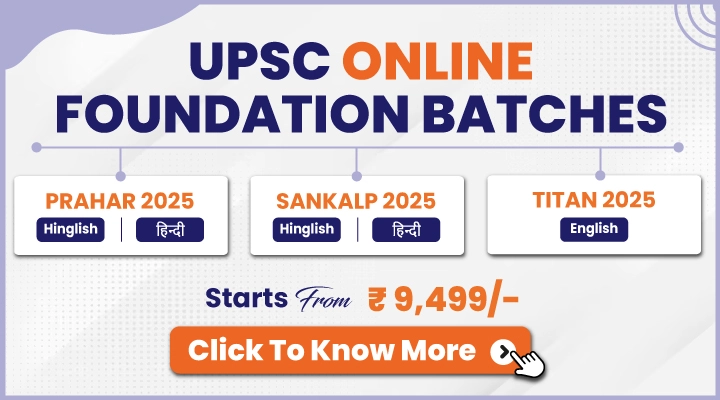
UPSC Essay Topics: Structure and Effective Writing Strategies
Crack the UPSC Essay Topics with insights on Paper, structure, and effective writing strategies. Exploring the exam format, marks distribution, and practice tips for success. Get a list of previously asked UPSC essay topics and expected themes for 2024. Boost your essay writing skills with valuable information on word limits, sections, and scoring.

Know about UPSC Essay Topics and Exam Structure
The Union Public Service Commission conducts Civil Services Exams every year which comprises three stages i.e Prelims, Mains, and the Interview. The Mains exam consists of multiple papers, with the first paper being the Essay paper. Every year UPSC mains essay papers have UPSC Essay Topics relevant to current scenarios. So, in this article, we will explore every aspect of the Essay paper and probable UPSC Essay Topics. Before going further let’s see the structure of the UPSC exam .
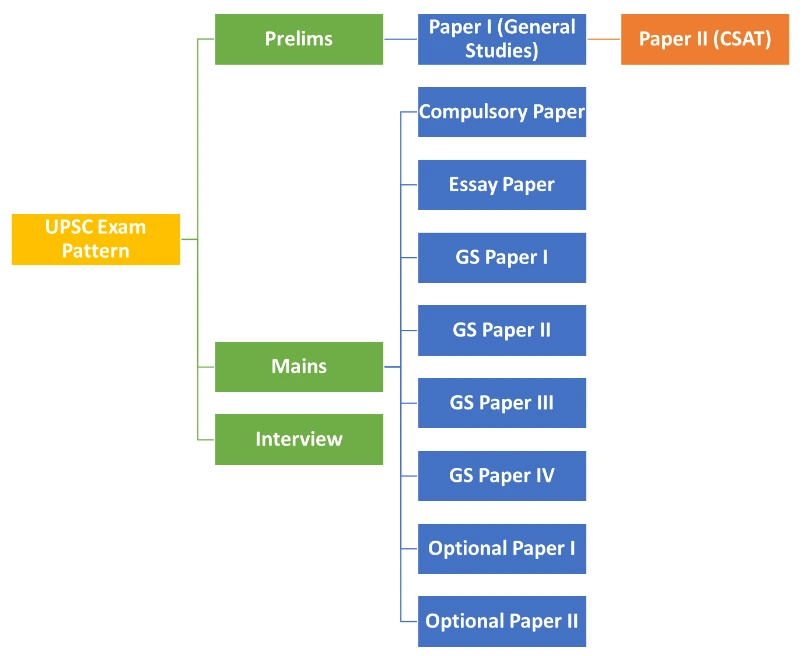
Marks Distribution of Mains examination: The 250-Mark Weightage of UPSC Essay Topics
- Each UPSC Essay Topics of the main UPSC exam has an equal weight of 250 marks.
- So, essay papers have a weight of 250 marks, and marks scored on the essay papers were considered for evaluation.
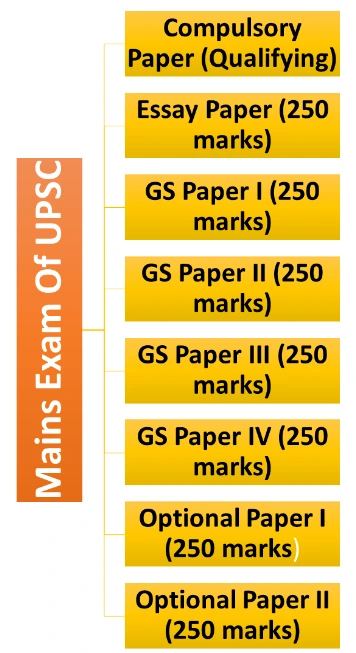
Structure of UPSC Essay Topics: Sections, Paper, and Scoring
- Marks Distribution- The UPSC CSE Essay Paper in Mains Exam consists of two sections A and B with four UPSC Essay Topics each of 125 marks and a total of 250 (125×2) marks.
- Word Limit- Candidates are given a choice to select a UPSC Essay Topics from each section and write about it in 1,000 to 2,000 words within the given time of three hours.
UPSC Essay Topics: Practice Strategies and Important Topics
- Practicing for UPSC Essay Topics: Tackling Changing Topics with Practice
- UPSC Essay topics of the UPSC mains exam change every year, so it becomes quite challenging for candidates to decide which UPSC Essay Topics they will face in the exam. It can be about things like how the economy is doing, how women can be stronger, art and culture, or how the media affects us. To make some predictions of UPSC Essay Topics from previous years question papers can be used.
- It is a good idea to look at the essay questions from previous years to get an idea of what might be asked.
- This will help candidates to practice writing essays and do well in the exam. With enough practice, candidates can excel in writing essays for the UPSC exam.
- So here we will see the UPSC Essay Topics from the previous year’s question papers and will give a list of probable UPSC Essay Topics which can be asked in the coming exam.
Expected UPSC Essay Topics for Paper 2024: UPSC Essay Topics and Writing Skills
For better practice we are putting some expected questions on which candidates can write an UPSC Essay Topics to brush up their essay writing skill.
Frequently Asked Questions
Do upsc essay topics get repeated, how many essay questions are asked in the upsc essay paper, what if the candidate exceeds the word limit of the essay paper, how can i write a good essay for upsc.
UPDATED :
Recommended For You

UPSC Prelims Postponed
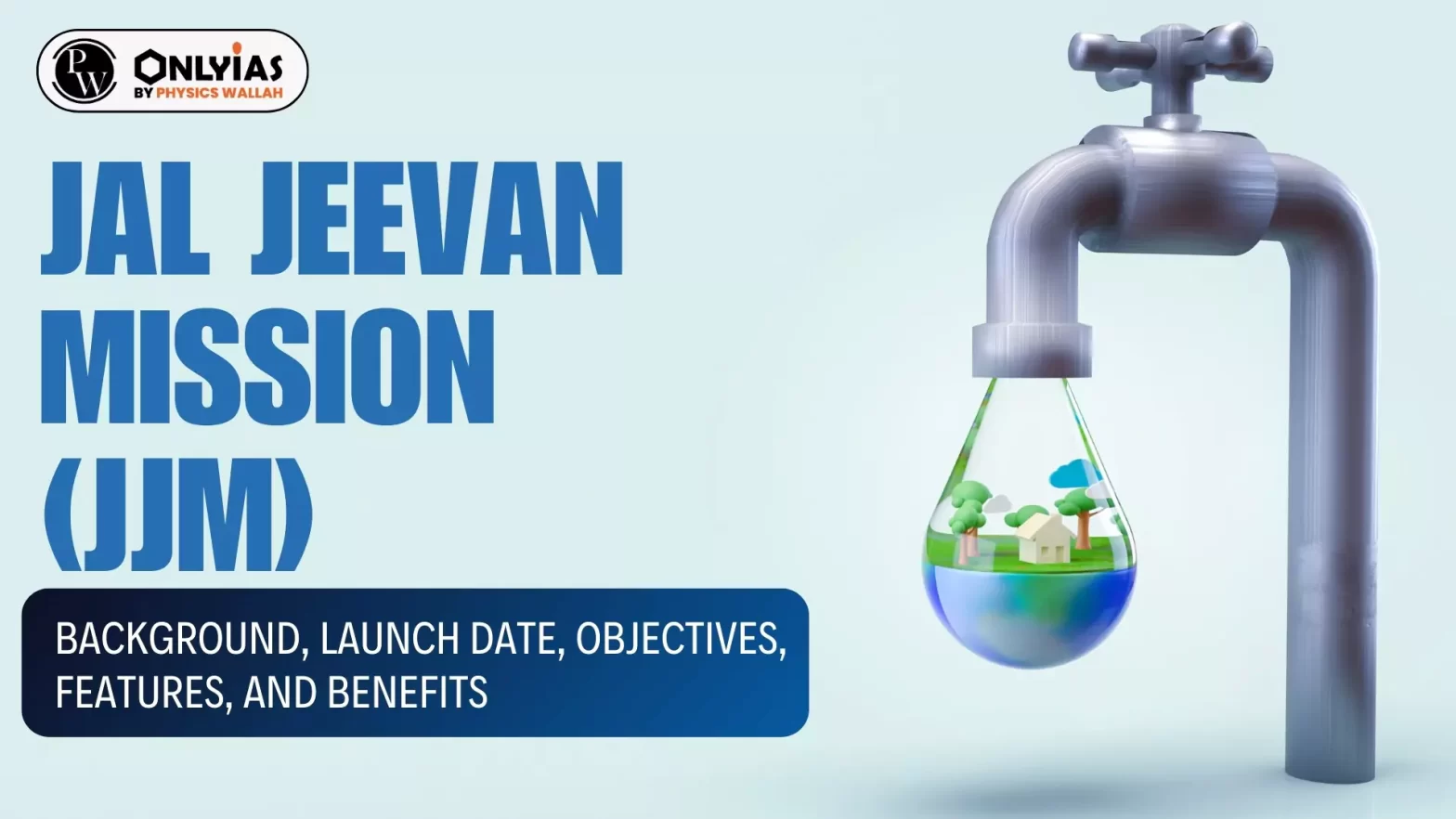
Jal Jeevan Mission (JJM): Background, Launch Date, Objective...
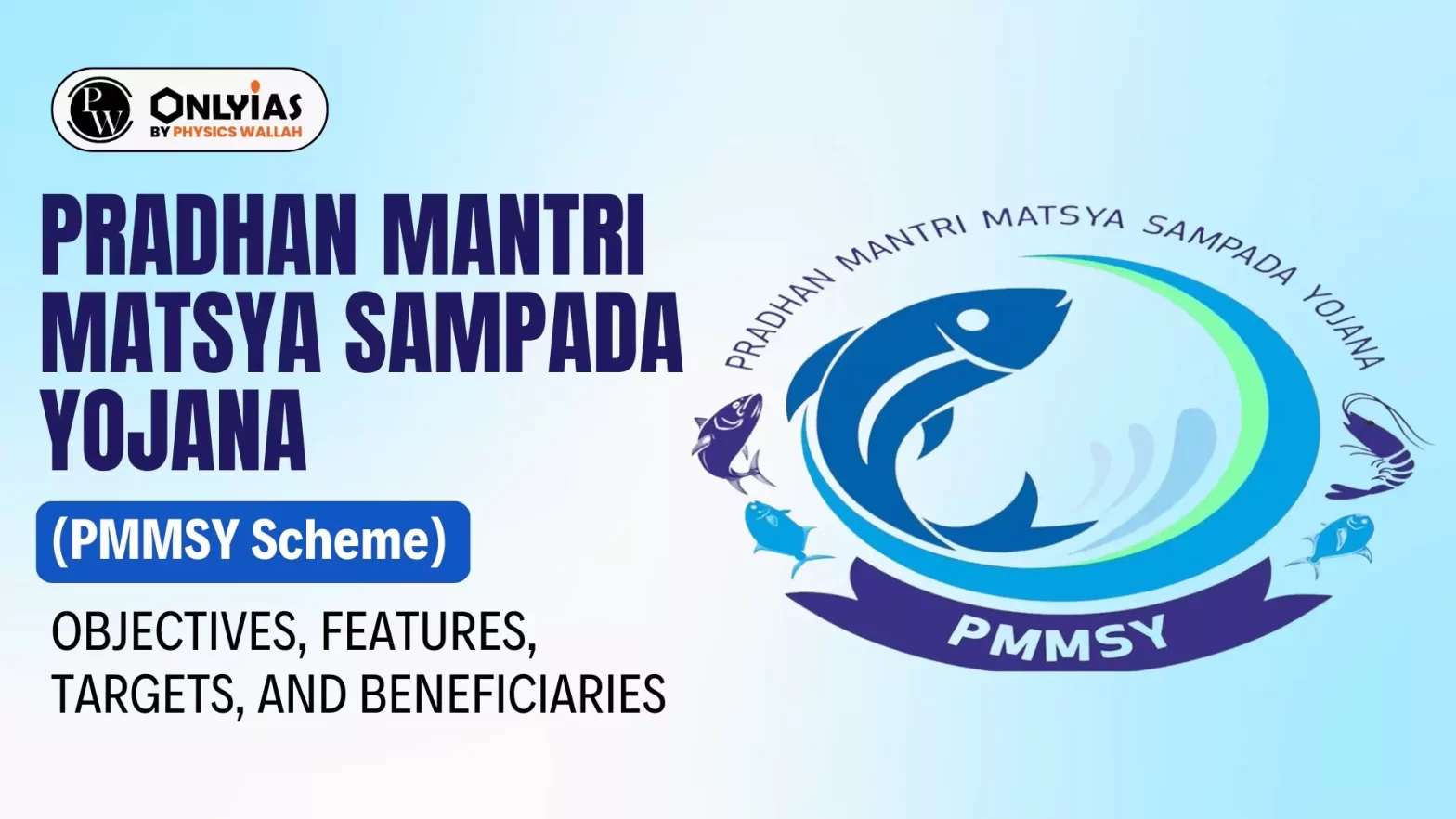
Pradhan Mantri Matsya Sampada Yojana (PMMSY Scheme): Objecti...

NABH NIRMAN Scheme: Aim, Objectives, Features, Need, and Cha...

Digi Yatra: Objectives, Goals, Need, Benefits, and Concerns
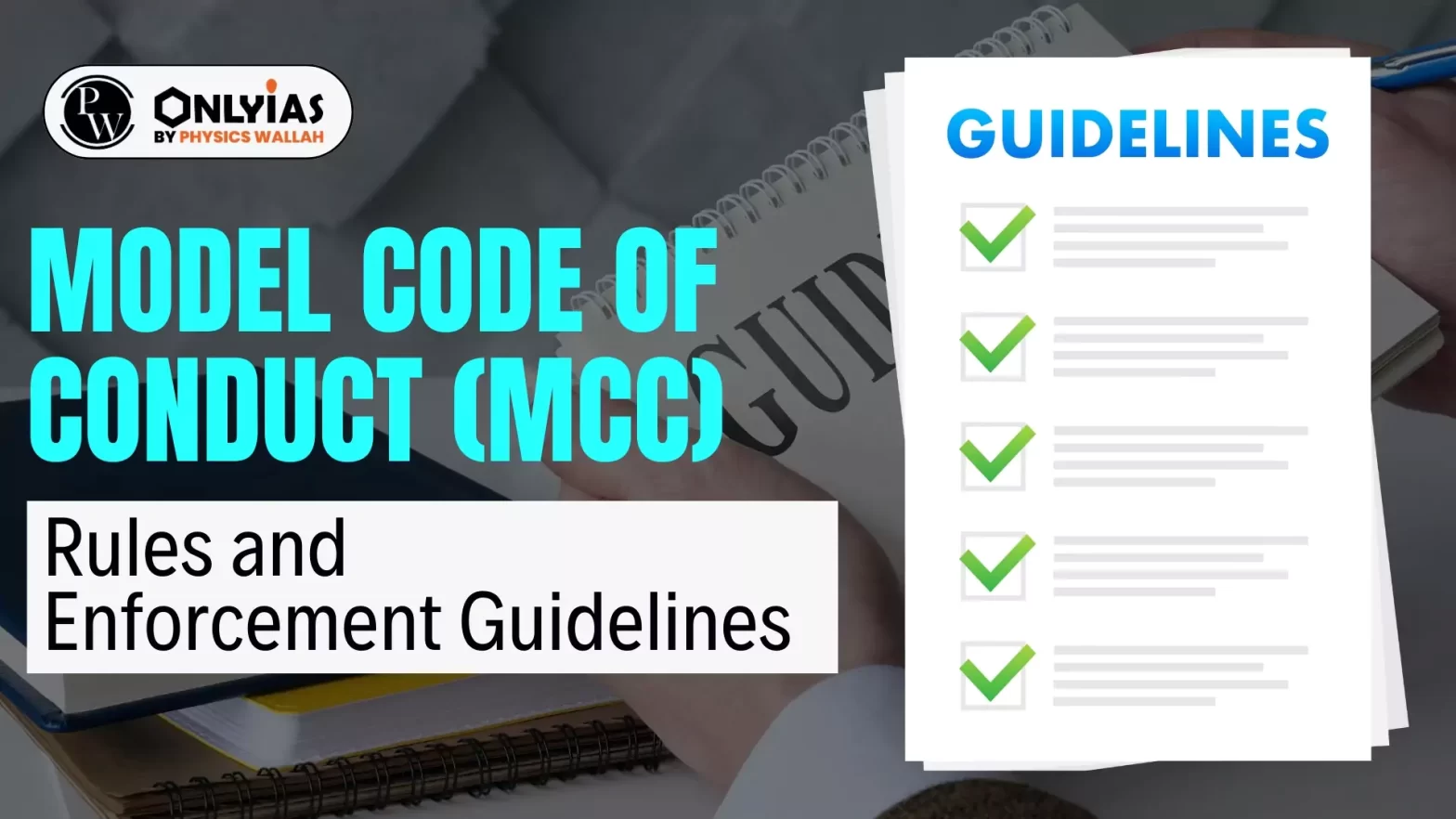
Model Code of Conduct (MCC): Rules and Enforcement Guideline...
Latest comments.
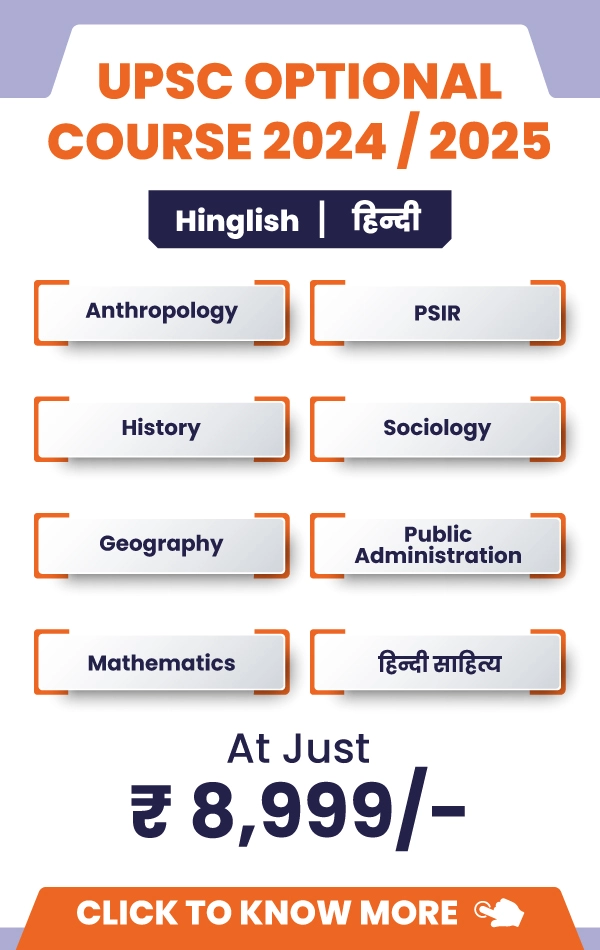
POCSO Act, 2012: Former CM Booked
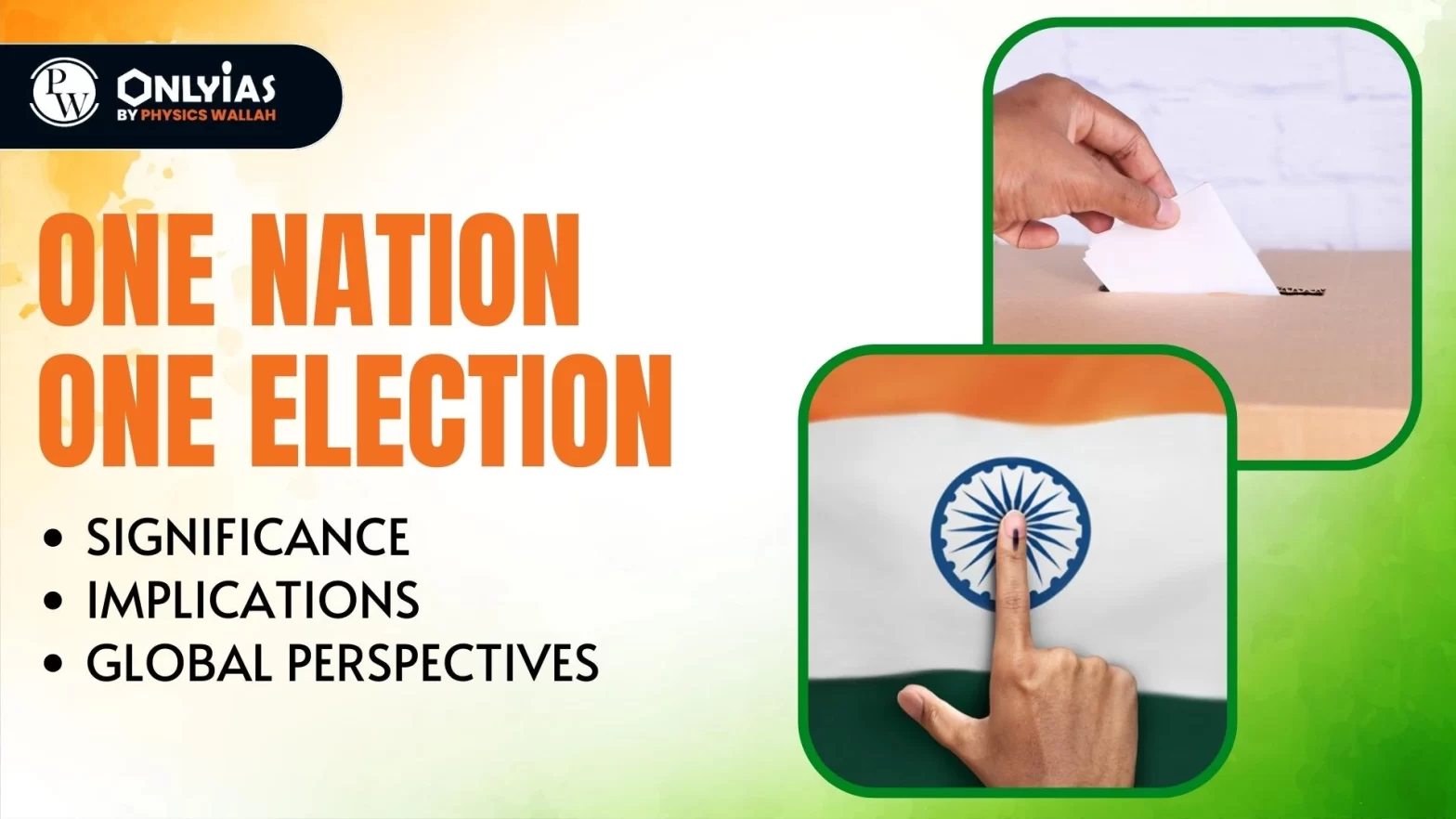
One Nation One Election: Significance, Implic...
Recent posts, jal jeevan mission (jjm): background, launch ..., pradhan mantri matsya sampada yojana (pmmsy s..., nabh nirman scheme: aim, objectives, features..., digi yatra: objectives, goals, need, benefits..., archive calendar.
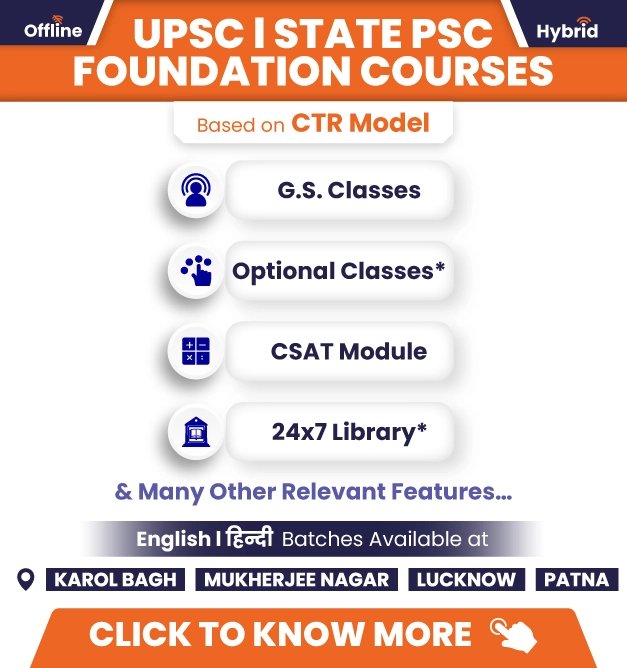
THE MOST LEARNING PLATFORM
Learn From India's Best Faculty

Our Courses
Our initiatives, beginner’s roadmap, quick links.

PW-Only IAS came together specifically to carry their individual visions in a mission mode. Infusing affordability with quality and building a team where maximum members represent their experiences of Mains and Interview Stage and hence, their reliability to better understand and solve student issues.
Subscribe our Newsletter
Sign up now for our exclusive newsletter and be the first to know about our latest Initiatives, Quality Content, and much more.
Contact Details
G-Floor,4-B Pusha Road, New Delhi, 110060
- +91 9920613613
- [email protected]

Download Our App

Biginner's Roadmap
Suscribe now form, to get early access of such quality content..
Join Us Now
(Promise! We Will Not Spam You.)
CURRENT AF.
<div class="new-fform">
Select centre Online Mode Hybrid Mode PWonlyIAS Delhi (ORN) PWonlyIAS Delhi (MN) PWonlyIAS Lucknow PWonlyIAS Patna Other
Select course UPSC Online PSC ONline UPSC + PSC ONLINE UPSC Offline PSC Offline UPSC+PSC Offline UPSC Hybrid PSC Hybrid UPSC+PSC Hybrid Other
</div>
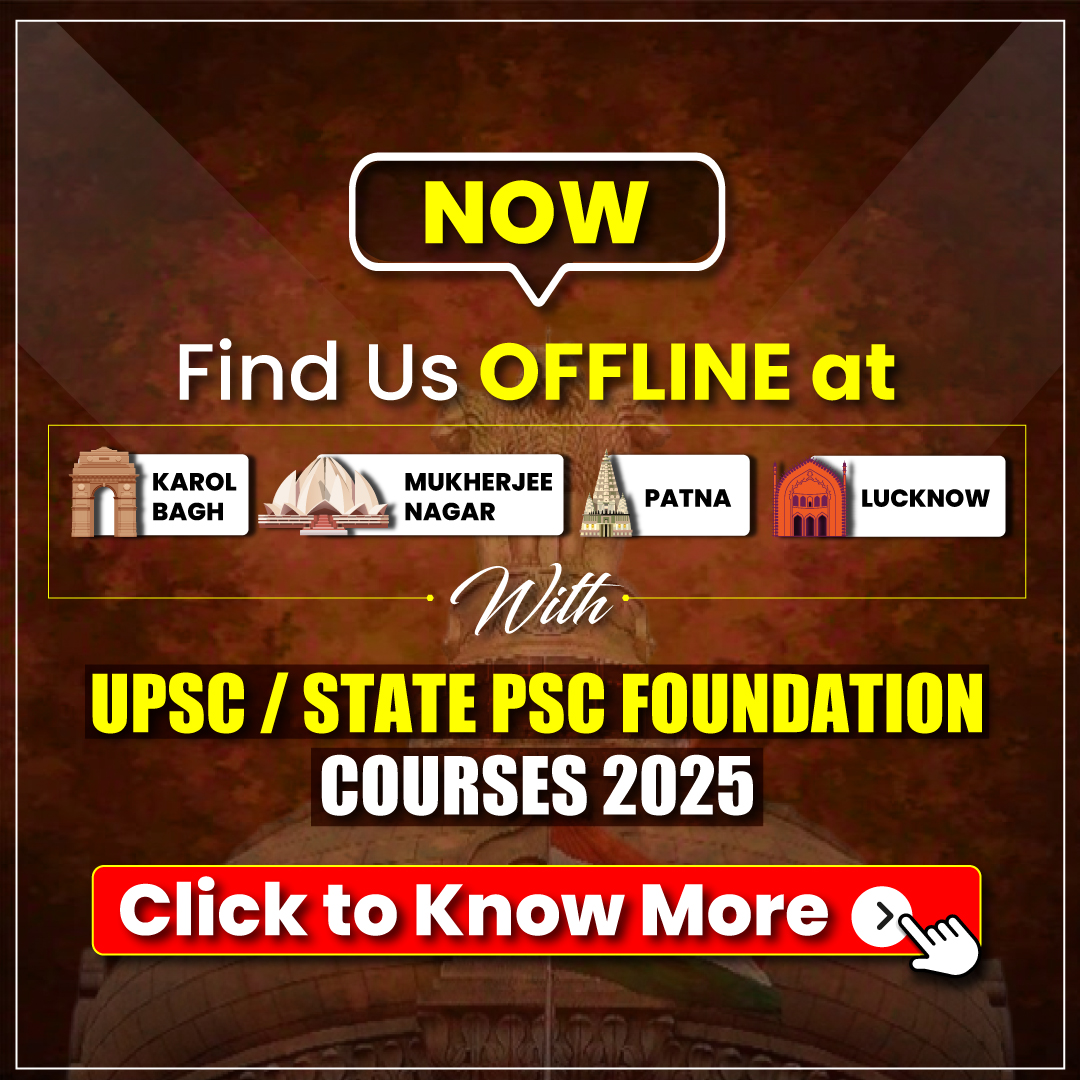

5 Essential Steps: How to Write an Essay in UPSC Mains
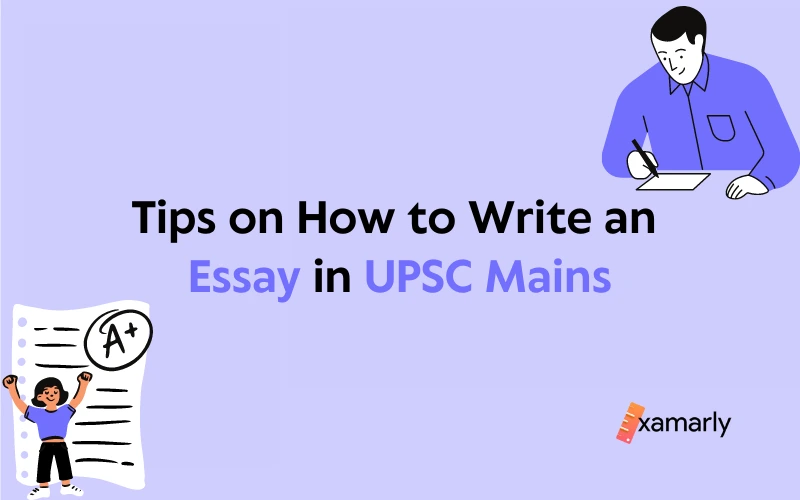
Writing an essay in the Union Public Service Commission ( UPSC ) Mains examination can be a daunting task for many aspiring civil servants.
The essay paper carries a weightage of 250 marks and requires a high level of language proficiency, analytical thinking and writing skills. The essay is also one of the few opportunities for candidates to showcase their knowledge and views on a wide range of topics and make a lasting impression on the examiners.
In this blog, we will provide you with steps and strategies on how to write an essay in UPSC Mains exam.
Whether you are a first-time aspirant or an experienced candidate, you will find useful insights to help you approach the essay paper with confidence and write an essay that stands out. So, let’s get started!
UPSC CSE Mains Essay Writing Exam Pattern
What is a good score in essay writing paper in upsc mains, structure of an essay in upsc mains, 5 essential steps: how to write a well-structured essay in upsc mains, 1. t- time limit, 2. i- introduction, 3. p- paragraphs and pointers, 4. c- conclusion, 5. r- revision, strategy for essay writing in upsc mains exam, 1. the central idea is the key, 2. brainstorming for a better idea, 3. making a blueprint, essential elements of essays in upsc mains, the super 3, the supportive 3, personal comments and opinions, reference books for essay writing in upsc mains, faqs on how to write an essay in upsc mains exam, what is the format of an essay in upsc mains, how to choose a topic for an essay in upsc mains, how to write the introduction of an essay in upsc mains, how to write the body of an essay in upsc mains, how to write the conclusion of an essay in upsc mains, what are some common mistakes to avoid when writing an essay in upsc mains.
- How to improve one's essay writing skills for UPSC Mains?
- The paper comes under the UPSC CSE Mains exam in which two essays must be written within 3 hours, each within a 1000-1200 word limit.
- Each carries 125 marks, so the total is 250 marks.
- The paper is divided into two sections, each carrying a choice of 4 essays. The aspirant has to choose only one from each section.
- UPSC CSE Syllabus clearly instructs aspirants to keep their thoughts close to the subject and arrange their ideas accordingly. It further states that credit will be given for effective essays and coherent expression’.
Also Read : How To Complete UPSC Mains Paper in 3 Hours? – A Clear-Cut Guide
The essay paper counts for up to 250 marks. A score above 50% could be considered good. 125 is the perfect example.
A score of around 110-125 is considered average.
For an exceptional essay, you might score a perfect mark in the range of 150-160.
How to structure an essay for the UPSC exam is the first and foremost thing that should be learnt while taking into consideration how to write an essay in UPSC Mains.
The traditional way of UPSC CSE Mains essay writing is to break it into paragraphs with pointers in simple language. This technique is still working in structuring an informative and well-written essay for UPSC Mains.
A body paragraph is of utmost importance besides the introduction and conclusion part. The body paragraph contains important facts, figures, data, and information along with several relevant quotes.
Here are some points regarding the structuring of an essay in the form of an introduction, body, and conclusion that will help you in writing a well-balanced essay.
- The introduction part is the most important of all. Your introduction creates a first impression on the examiner. Your essay should always have a good starting and a conclusion.
- Body paragraphs are equally important parts of the essay that can be supportive, critical, or narrative. However, it is advised to have a mature thought process in all forms and to not take any side or get emotional in writing a certain opinion.
- Essays, along with facts and language skill also demands your opinion that should be written in a well-balanced way. The narrative part should be written by starting with an argument along with different facts.
- Further, a supportive paragraph is necessary to contain positive facts/ideas. Talking of a critical paragraph, it is advised to place it in the last part with the exact expression. However, it depends on your will. You can also open with a critical part.
- The conclusion is also crucial as it can bring you additional marks if done properly. Your concluding statement reveals a lot about you, as balancing every statement after a lot of critical evaluation and facts is a form of art.
Related Reading: How To Start Answer Writing Practice For UPSC: 5 Effective Pointers
Remember the mnemonic provided here that will help you to keep the important pointers in mind on how to write an essay in UPSC Mains.
Stick to the TIPCR formulae always. If you write with this structure, along with filling in a good amount of content, you are definitely going to score well in this paper.
Time management is very important for UPSC CSE Main essay writing. You get 3 hours to write two essays in the exam which means you have 1 hour and 30 minutes for each essay.
It is a fact that any aspirant needs 45 minutes to 1 hour to write one essay. Another 10 minutes is required for the revision of one essay.
Before all this, you need at least 20-30 minutes to brainstorm, jot down some points, and make an outline. Dividing the time and sticking to it is the only key to scoring good marks.
A good start of the introduction always arises the interest in the examiner. The examiner’s judgment and how they are going to take your whole piece depends on your starting.
If you start well, you must also end in an impressive manner. A good introduction can be a brief explanation of the given topic and you can make it effective by adding some quotes, a critical narrative, or your own narrative.
Paragraphs and pointers provide a smooth flow to your essay which not only looks like a structured essay but also feels like a more informative but less hectic to read a piece of writing.
Paragraphs in small chunks or pointers like short paragraphs provide an establishment that leads towards a conclusion.
Examiners are habitual of reading something in an ordered way, especially in Mains essay writing section.
Finishing on a good or smooth note is as important as starting on a good note. A smooth and positive conclusion with a clear explanation will help you in scoring good marks.
There should be a ‘Cyclic-return’ approach in your essay. The introduction should end with a question or discussion and in the conclusion, you can again come to that question to conclude it with a positive statement or anecdote.
To revise or read your whole piece in the entirety is as important as writing it. Keep a check on grammatical mistakes, and some missing points, or make sure your answer looks clean and tidy.
These things can be done only when you revise your answer. Add/omit some words as per your demands but should not be overdone.
You Might Also Like: How To Prepare For UPSC Prelims And Mains Together Like An Absolute Pro!
Just like the UPSC CSE your essay writing also needs planning. There are broadly three steps to writing a structured essay defining what the essay is going to talk about i.e. the central idea, brainstorming, and making a blueprint of it.
Mains essay writing demands a well-structured format from your side as it is one of the most prestigious and tough examinations in India .
“Innovation is the key determinant of economic growth and social welfare” .
This is basically a thesis statement of an essay question of UPSC CSE Mains 2016. In this statement, the central idea is ‘innovation’.
Here, the aspirant is supposed to bring out a dimension of innovation that directly or indirectly affects economic growth and social welfare. Aspirants are supposed to write that statement of facts only which supports the central idea or those statements that supplement the overall idea.
Brainstorming is one of the most powerful tools in the examination phase. Brainstorming leads to developing new ideas quickly or listing those ideas that align with your knowledge of the given topic.
There is no specific rule or technique for brainstorming, instead, you can jot down points on a paper that are necessary for your Mains essay writing.
Making a blueprint or outlining your essay means deciding what to write in the introduction, body, and conclusion parts. What ideas to represent in which section, which quotes are relevant to the given thesis, etc.
Before the actual writing, it is very important to see it in its entirety. It helps you to see the big picture. The blueprint also helps you in finding the right conclusion to wrap up your essay.
Check Out Our Blog On: Why is Self Assessment for UPSC CSE Necessary?
- Social element
- Political element
- Economical element
These three points should be considered while writing an essay. These three elements give a proper shape to an essay or any piece of the thesis.
Writing a formal one always demands dimensions and these three dimensions will always support your arguments concerning various areas of society. It enhances the effectiveness and creates a proper report-like structure along with your narratives to form well-balanced and good writing in your Mains essay writing.
- Constitutional
- Technological
These three additional dimensions also enhance the quality of your writing. You can use various technological perspectives, constitutional facts, remedies, laws, and legal terms to support the thesis in your Mains essay writing.
Your opinions matter a lot. UPSC CSE Mains essay writing demands a subjective approach to writing. It is very important to express your personal opinion on the issue or the given statement.
However, it should be kept in mind that your personal opinions should not be too biased in nature. Neutral and well-balanced writing is always appreciated by the UPSC.
Additional Reading: 3 Ways to Build a Revision Strategy for UPSC – A Must
You may seek help from books that will assist you with Essay Writing for UPSC Civil Services Exam.
- Essays for Civil Services and Other Competitive Examinations by Pulkit Khare.
- Essay Paper For Civil Services Main Examination by Pavneet Singh and Sonali Bansal
- Selected Contemporary Essays by Saumitra Mohan (MHE)
- My Experiment With Truth by M.K. Gandhi
- J.L. Nehru Getting India Back on Track by Ratan Tata
In addition to the above-mebtioned books, you make take help of English newspapers such as The Hindu and the newspaper editorial section to expand your vocabulary.
Staying updated with the current affairs is also necessary. Take a look at the Best Current Affairs Magazine For UPSC to keep yourself informed about the latest events happening around the world.
Practice is the key to success. Focus on reading, the art of argumentation, and correct sequence to achieve good scores in essays. Remember there is no such thing as a perfect essay, just arrange the ideas in an orderly fashion and keep writing.
Essays in the UPSC Mains exam must be written with the help of facts and figures along with data, like statistics from a government report or any data from a major research paper that supports a writer’s perspective on a given topic.
Conversational form, the use of first-person references, and getting emotional with the audience are not allowed in a formal structure.
The points made by the candidate need to be neutral, supported by logical facts and not someone’s biased personal opinions. A certain degree of straightforwardness should be there while writing a formal exam, especially for an exam like UPSC CSE.
The tips mentioned above revolve around how to write an essay in UPSC Mains. These will help improve your writing skills and build a better essay structure.
Also Read: Powerful Tips on How to Stay Motivated for UPSC Preparation
The format of an essay in UPSC Mains is as follows: Introduction, Body, and Conclusion. The introduction should state the main idea of the essay and the body should elaborate on it with examples and arguments. The conclusion should summarize the key points made in the essay. The word limit for an essay in UPSC Mains is usually around 250-300 words.
Choose a topic that you are well-versed in and have a strong opinion on. It is advisable to choose a topic that is relevant to current events and has social and political significance. This will help you present a well-researched and thought-out argument in your essay.
The introduction of an essay in UPSC Mains should be concise and clear. Start with a hook that grabs the reader’s attention, state the main idea of the essay, and provide a thesis statement. The thesis statement should provide a clear direction for the rest of the essay.
The body of an essay in UPSC Mains should elaborate on the main idea presented in the introduction. Divide the body into paragraphs and make sure each paragraph has a clear focus and supports the thesis statement. Use examples, facts, and statistics to make your arguments more persuasive.
The conclusion of an essay in UPSC Mains should summarize the key points made in the essay and restate the thesis statement. End with a final thought or a call to action that provides closure to the essay. Make sure the conclusion is not repetitive and adds value to the essay.
Some common mistakes to avoid when writing an essay in UPSC Mains include: poor structure, unclear arguments, repetitive information, grammatical errors, and using informal language. Make sure to proofread your essay before submitting to avoid these mistakes.
How to improve one’s essay writing skills for UPSC Mains?
To improve your essay writing skills for UPSC Mains, you can practice writing essays on a regular basis, read newspapers and articles to stay updated on current events, improve your vocabulary, and seek feedback from peers and teachers.
Additionally, reading sample essays and learning from the writing style of experienced writers can also help improve your skills.
Related Posts
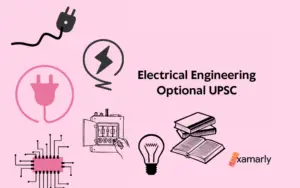
Electrical Engineering Optional UPSC
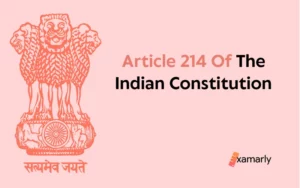
Article 214 Of The Indian Constitution: High Court For States
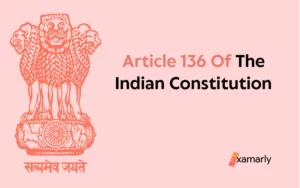
Article 136 Of The Indian Constitution
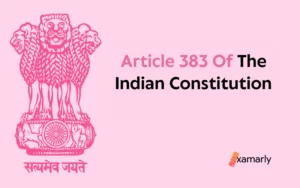
Article 383 of the Indian Constitution
Call Us Now
+91 9606900005 / 04
For Enquiry
Home » Mains Practice Questions » Essay
This exam necessitates a lot of serious study and devotion. Every applicant who understands the UPSC’s trends and expectations and works diligently toward achieving a rank under suitable supervision has a chance to succeed.
This year’s Mains – 2021 questions in GS, Essay, and even Optional papers need in-depth examination of trending topics as well as certain key static topics that may or may not be in the news.
Analytical skills can only be enhanced by regularly thinking and writing. Regular writing, in particular, is essential for improving your analytical abilities. Writing answers after reading other people’s answers or reading a synopsis will get you nowhere.
You must adhere to the standards outlined in the preceding article. You can get knowledge but not wisdom by consulting a summary.
Legacy IAS team will frame as many questions as feasible on each and every component of the GS syllabi as part of this initiative. This will allow you to take continuous notes and write answers until your UPSC Mains Exam 2022-2023.
- All GS Paper
Legacy IAS Academy (LIA) is a well-known name for IAS Preparation in Bangalore. LIA is a group of experienced faculties, which included retired IAS/IPS/IRS officers, Academics, and extraordinary tutors from trusted Institutes in India.
Stay updated with our latest analysis on Daily Current affairs from the Hindu, Indian Express and other leading newspapers along with our PIB and Editorial Summaries. Register now and be a part of the clan to not miss even a single update on getting one step closer to your dreams!
Legacy IAS Academy – Drive Location
Address : #1535, 39th Cross Rd, Kottapalya, 4th T Block East, Jayanagara 9th Block, Jayanagar, Bengaluru, Karnataka 560041
Phone : +91 9606900005 /04
Email : [email protected]
Legacy IAS Academy © 2019-2024 All Rights Reserved.
- How can I help you?
13 Steps: Mastering the Art of UPSC Essay Writing
Table of contents.
The UPSC Essay Paper is an important part of the Civil Services Examination (CSE). It is a subjective paper that assesses the candidate’s ability to express his/her ideas in a coherent and logical manner. The paper is of 250 marks, with two essay topics given from which the candidate has to choose one. The time duration for the paper is 3 hours.
The essay paper is not just a test of your writing skills but also your analytical and critical thinking abilities. It tests your ability to critically analyze a given topic and come up with a well-structured and well-argued essay. The essay paper is designed to evaluate your overall personality and thought process, and hence it is important to prepare well for this paper.
13 Steps on Essay Writing for UPSC Mains Exam
- Understand the Topic: The first and most crucial step in writing an essay is to understand the topic. Read the question carefully, underline the important keywords, and analyze what the question is asking. This will help you to get a clear idea of what to include in your essay and what to leave out. It is essential to have a thorough understanding of the topic to answer the question effectively.
- Plan your essay: Planning your essay is the next step. Divide your essay into an introduction, body, and conclusion. This will help you to structure your essay effectively. In the introduction, give an overview of the topic and state your thesis statement. The body should be divided into paragraphs, each dealing with a specific point. Finally, in the conclusion, summarize your main points and restate your thesis.
- Gather Information: Once you have a plan, the next step is to gather information. Research the topic thoroughly and collect relevant data, facts, and examples to support your arguments. Use authentic sources such as books, journals, and online databases to gather information. Remember to keep a record of all the sources you use.
- Structure your essay: Your essay should have a logical structure with a clear introduction, body, and conclusion. Ensure that there is a smooth transition between each section.
- Create an Outline: Once you have identified the key points, create an outline for your essay. This will help you organize your thoughts and present them in a logical and coherent manner. Your outline should include an introduction, main body, and conclusion.
- Write a strong introduction: The introduction should grab the reader’s attention and give an overview of the topic. It should also include your thesis statement.
- Develop your arguments: The body of your essay should present your arguments in a clear and concise manner. Each paragraph should focus on a single idea and support it with evidence.
- Provide examples: Use relevant examples to illustrate your arguments. This will make your essay more interesting and convincing.
- Avoid repetition: Ensure that you do not repeat the same ideas or arguments in different parts of the essay. This can make your essay monotonous and less engaging.
- Use appropriate language: Use clear, concise, and formal language. Avoid using jargon or slang, and ensure that your sentences are grammatically correct.
- Stay within the word limit: Your essay should be between 1000-1200 words. Ensure that you do not exceed the word limit as this can result in a penalty.
- Use Quotes: Quotes are a good way to include in your essay.
- End with a strong conclusion: The conclusion should summarize your main arguments and restate your thesis statement. Avoid introducing new ideas or arguments. End with a thought-provoking statement, a call to action, or a recommendation for further research.
How to design structure UPSC Essay
- Introduction: Begin your essay with a clear introduction that briefly describes the topic and the key arguments you will be presenting in your essay.
- Background: Provide some background information on the topic to give the reader context and help them understand the significance of the issue you are discussing.
- Thesis statement: Your thesis statement should appear at the end of your introduction. It should clearly state the main argument or position you will be taking in your essay.
- Body paragraphs: The body of your essay should consist of several paragraphs, each focusing on a different aspect of the topic. Start each paragraph with a clear topic sentence that links back to your thesis statement.
- Evidence: Use evidence to support your arguments, including examples, statistics, and expert opinions. Make sure the evidence is relevant to the argument you are making.
- Counterarguments: Address potential counterarguments and explain why they are not valid or how your argument outweighs them.
- Conclusion: Summarize your main arguments and restate your thesis statement. Provide a final thought or recommendation on the topic.
- References: If you have used any external sources to support your arguments, provide a list of references at the end of your essay.
Top Keywords for UPSC Essay
- Environment
- International Relations
- Ethics and Values
- Science and Technology
- Women Empowerment
- Agriculture
- Infrastructure
- Urbanization
- Globalization
- Climate Change
- Development
- Human Rights
- Constitution.
Recommended Souces for UPSC Essay
- The Hindu and The Indian Express newspapers: Reading daily newspapers like The Hindu and The Indian Express can help you stay updated with current affairs and have an understanding of different topics related to politics, economics, society, and culture.
- Yojana and Kurukshetra magazines: These magazines provide in-depth analysis and insights into current affairs and social issues. They are published by the government of India and can help you to develop a well-rounded perspective on various topics.
- The Collected Essays of Jawaharlal Nehru: The book is a collection of essays written by Jawaharlal Nehru, the first prime minister of India. It covers various topics related to India’s history, culture, politics, and society.
- India Since Independence by Bipan Chandra: The book provides a comprehensive analysis of India’s political, economic, and social changes since independence. It can help you to understand the historical context of different issues and topics.
- The Argumentative Indian by Amartya Sen: The book is a collection of essays that explore India’s intellectual traditions and cultural diversity. It can help you to develop a broader perspective on various issues.
- The Discovery of India by Jawaharlal Nehru: The book is an exploration of India’s history, culture, and philosophy. It can help you to understand India’s diverse cultural and intellectual traditions and their relevance to contemporary issues.
- India’s Struggle for Independence by Bipan Chandra: The book provides a detailed account of India’s freedom struggle and its leaders. It can help you to understand the historical context of various issues and their relevance to contemporary India.
- Ethics, Integrity, and Aptitude by Subbarao and P.N. Roy Chowdhury: The book covers topics related to ethics, integrity, and aptitude, which are essential for civil servants. It can help you to develop a holistic perspective on various issues and topics.
Some Other Recommended
- Watch discussions and debates on News
- Work on PYQ
Important Quotes for UPSC GS and Essay
- You will not be punished for your anger, you will be punished by your anger.
- What we think, we become.
- Hatred does not cease by hatred, but only by Love; this is the eternal rule.
Swami Vivekananda
- “Arise! Awake! and stop not until the goal is reached.
- You cannot believe in God until you believe in yourself.
Mahatma Gandhi
- Your thoughts become your words,
- Your words become your actions,
- Your actions become your habits,
- Your habits become your values,
- Your values become your destiny.
- Corruption and hypocrisy ought not to be inevitable products of democracy, as they undoubtedly are today.
- “The best way to find yourself is to lose yourself in service of others.”
- You must not lose faith in humanity. Humanity is an ocean; if a few drops of the ocean are dirty, the ocean does not become dirty.
- The weak can never forgive. Forgiveness is the attribute of the strong.
- I object to violence because when it appears to do good, the good is only temporary; the evil it does Is permanent.
- Live as if you were to die tomorrow. Learn as if you were to live forever.
- A nation’s culture resides in the hearts and in the soul of its people.
- Strength does not come from physical capacity. It comes from an indomitable will.
- There is a higher court than courts of justice and that is the court of conscience. It supersedes all other courts.
- Truth stands, even if there be no public support. It is self-sustained.
- The greatness of a nation can be judged by the way is animals are treated.
- A man is but the product of his thoughts what he thinks, he becomes.
Jawaharlal Nehru
- Culture is the widening of the mind and of the spirit.
- The only alternative to coexistence is codestruction.
- Failure comes only when we forget our ideals and objectives and principles.
Mother Teresa
- Loneliness and the feeling of being unwanted is the most terrible poverty.
- Peace begins with a smile.
- The biggest disease today is not leprosy or tuberculosis, but rather the feeling of being unwanted.
Dr. B R Ambedkar
- I like the religion that teaches liberty, equality and fraternity.
- I measure the progress of a community by the degree of progress which woman have achieved.
- Sincerity is the sum of all moral qualities.
A.P.J. Abdul Kalam
- Educationists should build the capacities of the spirit of inquiry, creativity, entrepreneurial and moral leadership among students and become their role model.
- If you want to shine like a sun, first burn like a sun.
- Teaching is a very noble profession that shapes the character, calibre, and future of an individual. If the people remember me as a good teacher, that will be the biggest honour for me.
- Let me define a leader. He must have vision and passion and not be afraid of any problem. Instead, he should know how to defeat it. Most importantly, he must work with integrity.
- Don’t take rest after your first victory because if you fail in second, more lips are waiting to say that your first victory was just luck.
- When a nation is surrounded by weaponized nations, she has to equip herself.
Deen Dayal Upadhayaya
- “Independence can be meaningful only if it becomes instrument for expression of our Culture.
- “To educate a child is in the interest of society itself.”
- “When nature is channelled according to the principles of Dharma, we have culture &civilisation.”
- “Human nature has both tendencies–Anger & Greed on the one hand and Love & Sacrifice on the other.”
Atal Bihari Vajpayee
- Empowering the individual means empowering the nation. And empowerment is best served through rapid economic growth with rapid social change.
- No guns but only brotherhood can resolve the problems.
- Terrorism has become a festering wound. It is an enemy of humanity.
- In law, a man is guilty when he violates the rights of others. In ethics he is guilty if he only thinks of doing so.
- Always recognize that human individuals are ends, and do not use them as means to your end.
- To be is to do.
- He is richest who is content with the least, for content is the wealth of nature.
- The unexamined life is not worth living.
- He is a man of courage who does not run away, but re- mains at his post and fights against the enemy.
- Worthless people live only to eat and drink; people of worth eat and drink only to live.
- Human behaviour flows from three main sources: desire, emotion, and knowledge.
- Courage is knowing what not to fear.
- The measure of a man is what he does with power.
- The greatest wealth is to live content with little.
- Quality is not an act, it is a habit.
- We are what we repeatedly do. Excellence, then, is not an act, but a habit.
- The virtue of justice consists in moderation, as regulated by wisdom.
- Nothing is more surprising than the easiness with which the many are governed by the few.
- The law always limits every power it gives.
Thomas Aquinas
- Good can exist without evil, whereas evil cannot exist without good.
Jeremy Bentham
- The greatest happiness of the greatest number is the foundation of morals and legislation.
John Stuart Mill
- One person with a belief is equal to ninety-nine who have only interests.
- The love of power and the love of liberty are in eternal antagonism.
Soren Kierkegaard
- Life is not a problem to be solved, but a reality to be experienced.
- If anyone on the verge of action should judge himself according to the outcome, he would never begin.
- I Hear and I forget. I see and I remember. I Do and I understand.
- Everything has beauty, but not everyone sees it.
- Be not ashamed of mistakes and thus make them crimes.
- Education breeds confidence. Confidence breeds hope. Hope breeds peace.
- Forget injuries, never forget kindnesses.
Abraham Lincoln
- When I do good, I feel good. When I do bad, I feel bad. That’s my religion.
- Be sure you put your feet in the right place, then stand firm.
- Happiness is not something readymade. It comes from your own actions.
- In the practice of tolerance, one’s enemy is the best teacher.
Martin Luther
- Forgiveness is God’s command.
Martin Luther King, Jr.
- We must accept finite disappointment, but never lose infinite hope.
- Love is the only force capable of transforming an enemy into friend.
SAYINGS ON VALUES
- I think honesty is the most heroic quality one can aspire to – Daniel Radcliffe
- “Money is only a human invention”. – Vanna Bonta
JOTTINGS ON MORALITY
- “Wisdom, compassion, and courage are the three universally recognized moral qyalities of men – Confucius
- “Moral values, and a culture and a religion, maintaining these Values are far better than laws and regulations”. – Swami Sivananda
PHILOSOPHICAL PONDERINGS ON POWER
- “Knowledge is power” – Francis Bacon
- Nothing strengthens authority so much as silence”. – Leonardo da Vinci
- “The power to question is the basis of all human progress – Indira Gandhi
- The greater the power, the more dangerous the abuse”. – Edmund Burke
CATCH-THE-LINES’ ON CORRUPTION
- “It is not power that corrupts but fear. Fear of losing power corrupts those who wield it and fear of the scourge of power corrupts those who are subject to it – Aung San Suu Kyi
- “A man who has never g
- one to school may steal a freight car; but if he has a university education, he may steal the whole railroad – Theodore Roosevelt
UPSC Previous Years Essay Topics
Administration.
- Politics, bureaucracy and business – fatal triangle. (1994)
- Politics without ethics is a disaster. (1995)
- The VIP cult is a bane of Indian democracy. (1996)
- Need for transparency in public administration. (1996)
- The country’s need for a better disaster management system. (2000)
- How should a civil servant conduct himself? (2003)
Democracy/India since independence
- Whither Indian democracy? (1995)
- What we have not learnt during fifty years of independence. (1997)
- Why should we be proud of being Indians? (2000)
- What have we gained from our democratic set-up? (2001)
- How far has democracy in India delivered the goods? (2003)
- National identity and patriotism. (2008)
- In the context of Gandhiji’s views on the matter, explore, on an evolutionary scale, the terms ‘Swadhinata’, ‘Swaraj’ and ‘Dharmarajya’. Critically comment on their contemporary relevance to Indian democracy. (2012)
- Is the colonial mentality hindering India’s success? (2013)
- Dreams which should not let India sleep. (2015)
- Management of Indian border disputes – a complex task. (2018)
Economic growth and development
- Resource management in the Indian context. (1999)
- GDP (Gross Domestic Product) along with GDH (Gross Domestic Happiness) would be the right indices for judging the wellbeing of a country. (2013)
- Was it the policy paralysis or the paralysis of implementation which slowed the growth of our country? (2014)
- Crisis faced in India – moral or economic. (2015)
- Near jobless growth in India: An anomaly or an outcome of economic reforms. (2016)
- Digital economy: A leveller or a source of economic inequality. (2016)
- Innovation is the key determinant of economic growth and social welfare. (2016)
- Impact of the new economic measures on fiscal ties between the union and states in India. (2017)
Federalism, Decentralisation
- The language problem in India: its past, present and prospects. (1998)
- Water resources should be under the control of the central government. (2004)
- Evaluation of panchayati raj system in India from the point of view of eradication of power to people. (2007)
- Is autonomy the best answer to combat balkanization? (2007)
- Creation of smaller states and the consequent administrative, economic and developmental implication. (2011)
- Cooperative federalism: Myth or reality. (2016)
- Water disputes between States in federal India. (2016)
Indian Culture & Society
- The Indian society at the crossroads. (1994)
- New cults and godmen: a threat to traditional religion. (1996)
- The composite culture of India. (1998)
- Youth culture today. (1999)
- Modernism and our traditional socio-ethical values. (2000)
- Indian culture today: a myth or a reality? (2000)
- As civilization advances culture declines. (2003)
- From traditional Indian philanthropy to the gates-buffet model-a natural progression or a paradigm shift? (2010)
- Judicial activism. (1997)
- Judicial activism and Indian democracy. (2004)
- Justice must reach the poor. (2005)
Social justice/Poverty
- Reservation, politics and empowerment. (1999)
- Food security for sustainable national development. (2005)
- The focus of health care is increasingly getting skewed towards the ‘haves’ of our society. (2009)
- Farming has lost the ability to be a source of subsistence for the majority of farmers in India. (2017)
- Poverty anywhere is a threat to prosperity everywhere. (2018)
Media & Society
- Misinterpretation and misuse of freedom in India. (1998)
- Mass media and cultural invasion. (1999)
- Responsibility of media in a democracy. (2002)
- How has satellite television brought about cultural change in Indian mindsets? (2007)
- Role of media in good governance. (2008)
- Does Indian cinema shape our popular culture or merely reflect it? (2011)
- Is sting operation an invasion on privacy? (2014)
Environment/Urbanisation
- Urbanization is a blessing in disguise. (1997)
- Protection of ecology and environment is essential for sustained economic development. (2006)
- Urbanisation and its hazards. (2008)
- Should a moratorium be imposed on all fresh mining in tribal areas of the country? (2010)
- We may brave human laws but cannot resist natural laws. (2017)
Economic sectors/MNCs
- Multinational corporations – saviours or saboteurs. (1994)
- Globalization would finish small-scale industries in India. (2006)
- BPO boom in India. (2007)
- Special economic zone: boon or bane? (2008)
- Are our traditional handicrafts doomed to a slow death? (2009)
- Is the criticism that the Public-Private-Partnership (PPP) model for development is more of a bane than a boon in the Indian context, justified? (2012)
- Tourism: Can this be the next big thing for India? (2014)
- Restructuring of Indian education system. (1995)
- Literacy is growing very fast, but there is no corresponding growth in education. (1996)
- Irrelevance of the classroom. (2001)
- Privatization of higher education in India. (2002)
- Modern technological education and human values. (2002)
- What is real education? (2005)
- “Education for all” campaign in India: myth or reality. (2006)
- Independent thinking should be encouraged right from the childhood. (2007)
- Is an egalitarian society possible by educating the masses? (2008)
- Credit – based higher education system – status, opportunities and challenges. (2011)
- Is the growing level of competition good for the youth? (2014)
- Are the standardized tests good measure of academic ability or progress? (2014)
- Education without values, as useful as it is, seems rather to make a man more clever devil. (2015)
- Destiny of a nation is shaped in its classrooms. (2017)
- The new emerging women power: the ground realities. (1995)
- Greater political power alone will not improve women’s plight. (1997)
- Woman is god’s best creation. (1998)
- Women empowerment: challenges and prospects. (1999)
- Empowerment alone cannot help our women. (2001)
- Whither women’s emancipation? (2004)
- If women ruled the world. (2005)
- The hand that rocks the cradle. (2005)
- Women’s reservation bill would usher in empowerment for women in India. (2006)
- Managing work and home – is the Indian working woman getting a fair deal? (2012)
- If development is not engendered, it is endangered. (2016)
- Fulfillment of ‘new woman’ in India is a myth. (2017)
Quotes-based/Philosophy
- Youth is a blunder, manhood a struggle, old age a regret. (1994)
- Useless life is an early death. (1994)
- Disinterested intellectual curiosity is the lifeblood of civilisation. (1995)
- When money speaks, the truth is silent. (1995)
- Our deeds determine us, as much as we determine our deeds. (1995)
- Truth is lived, not taught. (1996)
- True religion cannot be misused. (1997)
- Search for truth can only be a spiritual problem. (2002)
- The paths of glory lead but to the grave. (2002)
- If youth knew, if age could. (2002)
- There is nothing either good or bad but thinking makes it so. (2003)
- Be the change you want to see in others. (2013)
- With greater power comes greater responsibility. (2014)
- Words are sharper than the two-edged sword. (2014)
- Lending hands to someone is better than giving a dole. (2015)
- “The past’ is a permanent dimension of human consciousness and values. (2018)
- Reality does not conform to the ideal, but confirms it. (2018)
- Attitude makes habit, habit makes character and character makes a man. (2007)
- Discipline means success, anarchy means ruin. (2008)
- Character of an institution is reflected in its leader. (2015)
- Need brings greed, if greed increases it spoils breed. (2016)
- Joy is the simplest form of gratitude. (2017)
- A good life is one inspired by love and guided by knowledge. (2018)
- A people that values its privileges above its principles loses both. (2018)
- Customary morality cannot be a guide to modern life. (2018)
Globalisation
- Modernisation and westernisation are not identical concepts. (1994)
- The world of the twenty-first century. (1998)
- The implications of globalization for India. (2000)
- My vision of an ideal world order. (2001)
- The masks of new imperialism. (2003)
- Globalizations and its impact on Indian culture. (2004)
- ‘Globalization’ vs. ‘nationalism’. (2009)
- Preparedness of our society for India’s global leadership role. (2010)
Science & Tech
- The modern doctor and his patients. (1997)
- Value-based science and education. (1999)
- The march of science and the erosion of human values. (2001)
- Spirituality and scientific temper. (2003)
- The lure of space. (2004)
- Science and Mysticism: Are they compatible? (2012)
- Science and technology is the panacea for the growth and security of the nation. (2013)
- Technology cannot replace manpower. (2015)
- Alternative technologies for a climate change resilient India. (2018)
Internet/IT
- The cyberworld: its charms and challenges. (2000)
- Increasing computerization would lead to the creation of a dehumanized society. (2006)
- Cyberspace and Internet: Blessing or curse to the human civilization in the long run. (2016)
- Social media is inherently a selfish medium. (2017)
International organisations/relations
- Restructuring of UNO reflect present realities. (1996)
- India’s role in promoting ASEAN cooperation. (2004)
- Importance of Indo-US nuclear agreement. (2006)
- Has the Non- Alignment Movement (NAM) lost its relevance in a multipolar world. (2017)
- Terrorism and world peace. (2005)
- Are we a ‘soft’ state? (2009)
- Good fences make good neighbours. (2009)
- In the Indian context, both human intelligence and technical intelligence are crucial in combating terrorism. (2011)
Miscellaneous
- India’s contribution to world wisdom. (1998)
- The pursuit of excellence. (2001)
- Geography may remain the same; history need not. (2010)
- Fifty Golds in Olympics: Can this be a reality for India? (2014)
- Quick but steady wins the race. (2015)

Related Posts
How to read indian polity by m.laxmikanth for upsc exams 2024, how to study environment for upsc | environment shankar ias, how to read indian economy ramesh singh for upsc exam, how to read indian art & culture nitin singhania for upsc exam, leave a comment cancel reply.
Your email address will not be published. Required fields are marked *
Save my name, email, and website in this browser for the next time I comment.
- Skip to primary navigation
- Skip to main content
- Skip to primary sidebar
UPSC Coaching, Study Materials, and Mock Exams
Enroll in ClearIAS UPSC Coaching Join Now Log In
Call us: +91-9605741000
Essay Paper UPSC 2022 (Mains): Question Paper and Analysis
Last updated on September 16, 2022 by ClearIAS Team

The Essay Paper in UPSC CSE 2022 was easy compared to previous years. Please find the questions in the Essay Paper of the UPSC 2022 Civil Services Mains Examination (written).
UPSC conducted the Essay Paper , as part of the Civil Services Main Exam 2022 on 16-09-2022. The question paper was not as shocking as last year.
There were 8 Essay topics, out of which candidates were asked to write on two topics in 3 hours.
Candidates were supposed to answer about 1000 words for each essay (about 10-12 pages).
Table of Contents
Essay Paper UPSC 2022 Instructions
- Total Marks: 250 marks, Time duration: 3 hours.
- The essay must be written in the medium authorized in the admission certificate which must be stated clearly on the cover of this question-cum-answer (QCA) booklet in the space provided.
- No marks will be given for answers written in a medium other than the authorized one.
- Word limit, as specified, should be adhered to.
- Any page or portion of the page left blank, must be struck off clearly.
Essay Question Paper – UPSC Civil Services Main Exam (Written) 2022
Write two essays, choosing one topic from each of the following Sections A and B, in about 1000-1200 words each:
- Forests are the best case studies for economic excellence.
- Poets are the unacknowledged legislators of the world.
- History is a series of victories won by the scientific man over the romantic man.
- A ship in the harbour is safe but that is not what a ship is for.
- The time to repair the roof is when the sun is shining.
- You cannot step twice in the same river.
- Smile is the chosen vehicle for all ambiguities.
- Just because you have a choice, it does not mean that any of them has to be right.
UPSC , as always, has ensured that the essay topics were much different from the GS questions.
A philosophical theme is clearly evident in most of the essay topics in Section A as well as Section B. This was the case in 2020 and 2021 as well. It is a clue about what UPSC expects from the essay paper.
Rather than asking candidates to write on topics most aspirants are familiar with or trained with, UPSC is now evaluating the essay writing skills of aspirants by providing them with abstract or philosophical topics.
This year, most of the topics were either proverbs or famous quotes.
All 8 topics presented this year will test the spontaneous thinking, comprehension, writing skills, and time management of aspirants.
Thinkers, Philosophers, and their Quotes
Let’s analyse the source of some of the question topics.
POETS ARE THE UNACKNOWLEDGED LEGISLATORS OF THE WORLD
This essay topic is one of the best-known and most frequently quoted lines from the Romantic poet Percy Bysshe Shelley (1792-1822).
Shelley thinks that poets can institute laws and create new materials for knowledge, determining the role of poets as legislators.
Shelley’s account of poetic language seeks to find an order to the chaos, which, possibly, Shelley sees in human society: the mess that only poets can fathom.
Therefore, he thinks, the poets’ enhanced poetic language can re-institute order in human society.
A SHIP IN HARBOUR IS SAFE BUT THAT IS NOT WHAT A SHIP IS FOR
This essay topic is connected with John A Shedd , an author and professor, who is attributed to this quote. Reference: his book Salt from My Attic , a collection of quotes and sayings (1928).
This phrase means, that getting out of your comfort zone is key to experiencing new things and broadening your horizons.
Only taking risks helps us grow as people—to either achieve our goals or do the things we’ve always wanted to do.
THE TIME TO REPAIR THE ROOF IS WHEN THE SUN IS SHINING
This essay topic was connected with John F. Kennedy. In his 1962 State of the Union Address, John F. Kennedy declared, “The best time to repair the roof is when the sun is shining”.
The primary message of the quote is fixing a leak is best done when the weather is good, rather than when it is not.
Ideally, you should begin the work of fixing the roof as soon after the leak was found. The first sunny day would be ideal. It is not easy to fix a roof when it is raining.
This statement is being used to remind us to do the right things at the right time. It also points us to take the advantage of favourable time.
YOU CAN NOT STEP TWICE IN THE SAME RIVER
This essay topic was quoted by Heraclitus, a Greek philosopher born in 544 b.c.
This means that you cannot step into the same river twice because the flow of the river will change each second. You will also change each second.
It is not possible to repeat past experiences, as time changes all things. You won’t get the exact experience twice. You need to live in the present and enjoy each moment.
A SMILE IS A CHOSEN VEHICLE FOR ALL AMBIGUITIES
This essay topic was quoted by Herman Melville, an American novelist.
JUST BECAUSE YOU HAVE A CHOICE DOES NOT MEAN THAT ANY OF THEM HAS TO BE RIGHT
This essay topic was quoted by Norton Juster, an American academic, architect, and writer in his book The Phantom Tollbooth
What should aspirants preparing for next year do for an essay paper?
First of all, you should take the essay paper seriously.
Unless properly trained, it is not easy to write 10-12 pages on an abstract or philosophical topic.
You need to polish your comprehension and analytical skills.
Read different kinds of essays – particularly philosophical essays.
Give stress to the thoughts of philosophers like Immanuel Kant, Thomas Aquinas, John Locke, Friedrich Niche, Karl Marx etc. Start writing essays on famous quotes.
Also, be prepared to write essays touching on other areas like society, politics, economy, or technology. UPSC is known for surprises.
Remember that there is nothing like a constant trend with respect to UPSC questions.
What you get by analysing the previous year’s question papers are clues. And only those are what you need from UPSC questions!

Aim IAS, IPS, or IFS?

About ClearIAS Team
ClearIAS is one of the most trusted online learning platforms in India for UPSC preparation. Around 1 million aspirants learn from the ClearIAS every month.
Our training methods are different from traditional coaching. We give special emphasis on smart work and personal mentorship. Many UPSC toppers thank ClearIAS for our role in their success.
Download the ClearIAS mobile apps now to supplement your self-study efforts with ClearIAS smart-study training.
Reader Interactions
September 17, 2022 at 5:03 am
I want to join this…..
Leave a Reply Cancel reply
Your email address will not be published. Required fields are marked *
Don’t lose out without playing the right game!
Follow the ClearIAS Prelims cum Mains (PCM) Integrated Approach.
Join ClearIAS PCM Course Now
UPSC Online Preparation
- Union Public Service Commission (UPSC)
- Indian Administrative Service (IAS)
- Indian Police Service (IPS)
- IAS Exam Eligibility
- UPSC Free Study Materials
- UPSC Exam Guidance
- UPSC Prelims Test Series
- UPSC Syllabus
- UPSC Online
- UPSC Prelims
- UPSC Interview
- UPSC Toppers
- UPSC Previous Year Qns
- UPSC Age Calculator
- UPSC Calendar 2024
- About ClearIAS
- ClearIAS Programs
- ClearIAS Fee Structure
- IAS Coaching
- UPSC Coaching
- UPSC Online Coaching
- ClearIAS Blog
- Important Updates
- Announcements
- Book Review
- ClearIAS App
- Work with us
- Advertise with us
- Privacy Policy
- Terms and Conditions
- Talk to Your Mentor
Featured on

and many more...
Mar 14, 2024
UPSC CSE 2024: 10 Preparation Challenges Faced By IAS Aspirants
Vast syllabus.
The UPSC CSE syllabus covers a wide range of topics from various subjects including history, geography, polity, economy, science, and current affairs. Managing and covering this extensive syllabus can be overwhelming.
Image Source: Canva
Time Management
Balancing preparation for multiple subjects along with other commitments such as college, job, or household responsibilities requires effective time management skills.
Adaptability to Exam Pattern Changes
UPSC occasionally introduces changes in the exam pattern, marking scheme, or syllabus. Aspirants need to stay updated and adapt their preparation strategies accordingly.
Revision Strategy
With the vast syllabus, revising all the topics effectively before the exam becomes crucial. Formulating a revision strategy that ensures coverage of all subjects while reinforcing concepts is a challenge.
Emotional Resilience
The UPSC journey is long and demanding, often spanning over a year or more. Maintaining motivation, managing stress, and dealing with failures require emotional resilience.
Writing Practice
The exam consists of descriptive papers where candidates need to write long answers, essays, and precis. Developing writing skills and practicing answer writing regularly is essential but often overlooked.
You may also like
Current affairs.
Keeping up with current affairs is crucial for the UPSC CSE as it forms a significant portion of the exam. However, staying updated with daily news amidst rigorous preparation can be challenging.
Concept Understanding vs. Rote Learning
UPSC CSE demands conceptual clarity rather than rote memorisation. Understanding complex concepts and applying them to answer questions requires deeper learning, which can be challenging for some aspirants.
Pressure and Expectations
As the UPSC CSE is highly competitive, aspirants often face pressure from peers, family, and society. Managing expectations and staying focused on personal goals can be challenging.
Information Overload
There is an abundance of study material available in the market, including books, coaching notes, online resources, and test series. Filtering relevant and quality resources while avoiding information overload is a challenge.
Thanks For Reading!
Next: What If You CAN'T Crack GATE 2024? 10 Backup Options For You
- IAS Preparation
- UPSC Preparation Strategy
- Topic Wise Essay Questions From UPSC Mains 1994 2018
Last 25 Years Topic-wise Essay Questions From UPSC Mains (1994 - 2018)
Paper I of the UPSC Civil Services mains exam is the Essay. Here, prelims-qualified IAS aspirants have to write two essays out of a few given topics. The paper is for a total of 250 marks and its marks are taken into consideration for the Final Merit List. In this article, we have listed all the essay topics asked in the UPSC mains exam from 1994 to 2018. We have also classified the last 25 years essay questions into topics to make your preparation easier.
Latest – See the UPSC Essay Topics in the IAS Mains 2020 Essay Paper. Download UPSC Mains 2020 Essay Paper from the linked article.
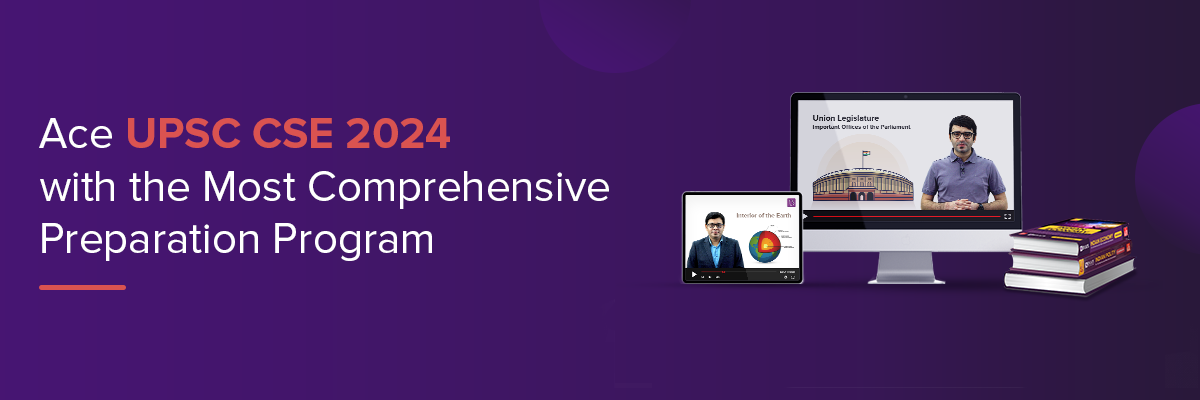
Explore The Ultimate Guide to IAS Exam Preparation
Download The E-Book Now!

UPSC Essay Topics
Administration.
- Politics, bureaucracy and business – fatal triangle. (1994)
- Politics without ethics is a disaster. (1995)
- The VIP cult is a bane of Indian democracy. (1996)
- Need for transparency in public administration. (1996)
- The country’s need for a better disaster management system. (2000)
- How should a civil servant conduct himself? (2003)
Democracy/India since independence
- Whither Indian democracy? (1995)
- What we have not learnt during fifty years of independence. (1997)
- Why should we be proud of being Indians? (2000)
- What have we gained from our democratic set-up? (2001)
- How far has democracy in India delivered the goods? (2003)
- National identity and patriotism. (2008)
- In the context of Gandhiji’s views on the matter, explore, on an evolutionary scale, the terms ‘Swadhinata’, ‘Swaraj’ and ‘Dharmarajya’. Critically comment on their contemporary relevance to Indian democracy. (2012)
- Is the colonial mentality hindering India’s success? (2013)
- Dreams which should not let India sleep. (2015)
- Management of Indian border disputes – a complex task. (2018)
Economic growth and development
- Resource management in the Indian context. (1999)
- GDP (Gross Domestic Product) along with GDH (Gross Domestic Happiness) would be the right indices for judging the wellbeing of a country. (2013)
- Was it the policy paralysis or the paralysis of implementation which slowed the growth of our country? (2014)
- Crisis faced in India – moral or economic. (2015)
- Near jobless growth in India: An anomaly or an outcome of economic reforms. (2016)
- Digital economy: A leveller or a source of economic inequality. (2016)
- Innovation is the key determinant of economic growth and social welfare. (2016)
- Impact of the new economic measures on fiscal ties between the union and states in India. (2017)
Federalism, Decentralisation
- The language problem in India: its past, present and prospects. (1998)
- Water resources should be under the control of the central government. (2004)
- Evaluation of panchayati raj system in India from the point of view of eradication of power to people. (2007)
- Is autonomy the best answer to combat balkanization? (2007)
- Creation of smaller states and the consequent administrative, economic and developmental implication. (2011)
- Cooperative federalism: Myth or reality. (2016)
- Water disputes between States in federal India. (2016)
Indian Culture & Society
- The Indian society at the crossroads. (1994)
- New cults and godmen: a threat to traditional religion. (1996)
- The composite culture of India. (1998)
- Youth culture today. (1999)
- Modernism and our traditional socio-ethical values. (2000)
- Indian culture today: a myth or a reality? (2000)
- As civilization advances culture declines. (2003)
- From traditional Indian philanthropy to the gates-buffet model-a natural progression or a paradigm shift? (2010)
- Judicial activism. (1997)
- Judicial activism and Indian democracy. (2004)
- Justice must reach the poor. (2005)
Social justice/Poverty
- Reservation, politics and empowerment. (1999)
- Food security for sustainable national development. (2005)
- The focus of health care is increasingly getting skewed towards the ‘haves’ of our society. (2009)
- Farming has lost the ability to be a source of subsistence for the majority of farmers in India. (2017)
- Poverty anywhere is a threat to prosperity everywhere. (2018)
Media & Society
- Misinterpretation and misuse of freedom in India. (1998)
- Mass media and cultural invasion. (1999)
- Responsibility of media in a democracy. (2002)
- How has satellite television brought about cultural change in Indian mindsets? (2007)
- Role of media in good governance. (2008)
- Does Indian cinema shape our popular culture or merely reflect it? (2011)
- Is sting operation an invasion on privacy? (2014)
Environment/Urbanisation
- Urbanization is a blessing in disguise. (1997)
- Protection of ecology and environment is essential for sustained economic development. (2006)
- Urbanisation and its hazards. (2008)
- Should a moratorium be imposed on all fresh mining in tribal areas of the country? (2010)
- We may brave human laws but cannot resist natural laws. (2017)
Economic sectors/MNCs
- Multinational corporations – saviours or saboteurs. (1994)
- Globalization would finish small-scale industries in India. (2006)
- BPO boom in India. (2007)
- Special economic zone: boon or bane? (2008)
- Are our traditional handicrafts doomed to a slow death? (2009)
- Is the criticism that the Public-Private-Partnership (PPP) model for development is more of a bane than a boon in the Indian context, justified? (2012)
- Tourism: Can this be the next big thing for India? (2014)
- Restructuring of Indian education system. (1995)
- Literacy is growing very fast, but there is no corresponding growth in education. (1996)
- Irrelevance of the classroom. (2001)
- Privatization of higher education in India. (2002)
- Modern technological education and human values. (2002)
- What is real education? (2005)
- “Education for all” campaign in India: myth or reality. (2006)
- Independent thinking should be encouraged right from the childhood. (2007)
- Is an egalitarian society possible by educating the masses? (2008)
- Credit – based higher education system – status, opportunities and challenges. (2011)
- Is the growing level of competition good for the youth? (2014)
- Are the standardized tests good measure of academic ability or progress? (2014)
- Education without values, as useful as it is, seems rather to make a man more clever devil. (2015)
- Destiny of a nation is shaped in its classrooms. (2017)
- The new emerging women power: the ground realities. (1995)
- Greater political power alone will not improve women’s plight. (1997)
- Woman is god’s best creation. (1998)
- Women empowerment: challenges and prospects. (1999)
- Empowerment alone cannot help our women. (2001)
- Whither women’s emancipation? (2004)
- If women ruled the world. (2005)
- The hand that rocks the cradle. (2005)
- Women’s reservation bill would usher in empowerment for women in India. (2006)
- Managing work and home – is the Indian working woman getting a fair deal? (2012)
- If development is not engendered, it is endangered. (2016)
- Fulfillment of ‘new woman’ in India is a myth. (2017)
Quotes-based/Philosophy
- Youth is a blunder, manhood a struggle, old age a regret. (1994)
- Useless life is an early death. (1994)
- Disinterested intellectual curiosity is the lifeblood of civilisation. (1995)
- When money speaks, the truth is silent. (1995)
- Our deeds determine us, as much as we determine our deeds. (1995)
- Truth is lived, not taught. (1996)
- True religion cannot be misused. (1997)
- Search for truth can only be a spiritual problem. (2002)
- The paths of glory lead but to the grave. (2002)
- If youth knew, if age could. (2002)
- There is nothing either good or bad but thinking makes it so. (2003)
- Be the change you want to see in others. (2013)
- With greater power comes greater responsibility. (2014)
- Words are sharper than the two-edged sword. (2014)
- Lending hands to someone is better than giving a dole. (2015)
- “The past’ is a permanent dimension of human consciousness and values. (2018)
- Reality does not conform to the ideal, but confirms it. (2018)
- Attitude makes habit, habit makes character and character makes a man. (2007)
- Discipline means success, anarchy means ruin. (2008)
- Character of an institution is reflected in its leader. (2015)
- Need brings greed, if greed increases it spoils breed. (2016)
- Joy is the simplest form of gratitude. (2017)
- A good life is one inspired by love and guided by knowledge. (2018)
- A people that values its privileges above its principles loses both. (2018)
- Customary morality cannot be a guide to modern life. (2018)
Globalisation
- Modernisation and westernisation are not identical concepts. (1994)
- The world of the twenty-first century. (1998)
- The implications of globalization for India. (2000)
- My vision of an ideal world order. (2001)
- The masks of new imperialism. (2003)
- Globalizations and its impact on Indian culture. (2004)
- ‘Globalization’ vs. ‘nationalism’. (2009)
- Preparedness of our society for India’s global leadership role. (2010)
Science & Tech
- The modern doctor and his patients. (1997)
- Value-based science and education. (1999)
- The march of science and the erosion of human values. (2001)
- Spirituality and scientific temper. (2003)
- The lure of space. (2004)
- Science and Mysticism: Are they compatible? (2012)
- Science and technology is the panacea for the growth and security of the nation. (2013)
- Technology cannot replace manpower. (2015)
- Alternative technologies for a climate change resilient India. (2018)
Internet/IT
- The cyberworld: its charms and challenges. (2000)
- Increasing computerization would lead to the creation of a dehumanized society. (2006)
- Cyberspace and Internet: Blessing or curse to the human civilization in the long run. (2016)
- Social media is inherently a selfish medium. (2017)
International organisations/relations
- Restructuring of UNO reflect present realities. (1996)
- India’s role in promoting ASEAN cooperation. (2004)
- Importance of Indo-US nuclear agreement. (2006)
- Has the Non- Alignment Movement (NAM) lost its relevance in a multipolar world. (2017)
- Terrorism and world peace. (2005)
- Are we a ‘soft’ state? (2009)
- Good fences make good neighbours. (2009)
- In the Indian context, both human intelligence and technical intelligence are crucial in combating terrorism. (2011)
Miscellaneous
- India’s contribution to world wisdom. (1998)
- The pursuit of excellence. (2001)
- Geography may remain the same; history need not. (2010)
- Fifty Golds in Olympics: Can this be a reality for India? (2014)
- Quick but steady wins the race. (2015)
When preparing for IAS Mains, aspirants must focus on UPSC Mains Answer Writing Practise as this will improve one’s speed, efficiency and writing skills. It will automatically help in essay writing as well.
Also, read:
Frequently Asked Questions on UPSC Essay Topics for UPSC Mains
Q 1. how can i write a good essay in upsc, q 2. does handwriting matter in upsc.

Leave a Comment Cancel reply
Your Mobile number and Email id will not be published. Required fields are marked *
Request OTP on Voice Call
Post My Comment
Please share all essay mains paper for UPSC ?
Hi Download UPSC Question Papers from the linked article.
IAS 2024 - Your dream can come true!
Download the ultimate guide to upsc cse preparation.
- Share Share
Register with BYJU'S & Download Free PDFs
Register with byju's & watch live videos.

JMI Invites Applications For Free Coaching For UPSC CSE 2024
T he Residential Coaching Academy (RCA) at the Centre for Coaching and Career Planning, Jamia Millia Islamia (JMI), is currently accepting online applications for its free coaching program, which includes hostel accommodation, aimed at preparing candidates for the UPSC Civil Services (Preliminary-cum-Main) examination in 2024.
The application link will be activated on March 18. Interested individuals can register for the UPSC coaching program via the official website, jmicoe.in.
This year, there are 100 seats available through this entrance test. Hostel accommodation is mandatory for all admitted students. In the event of limited availability, hostel seats may be allocated based strictly on merit determined by the entrance test. RCA reserves the right to decrease intake if deserving candidates are insufficient.
Candidates are required to pay a monthly hostel maintenance fee of Rs 1000, which must be paid six months in advance (totaling Rs 6000). Subsequently, maintenance charges must be paid two months in advance. Female students will deposit their fees at the Girl Hostel/Provost Office.
Individuals from Minority, SC, ST, and women communities are eligible to apply for this program. The university will conduct UPSC entrance examinations at ten centers: Delhi, Srinagar, Jammu, Hyderabad, Guwahati, Mumbai, Patna, Lucknow, Bengaluru, and Malappuram.
The academy has demonstrated strong results in previous years, with Shruti Sharma securing All India Rank 1 in the Civil Services Examination 2021. Since its establishment, RCA has facilitated over 600 selections in Civil Services and other Central and State Services, as stated by the university.
Exam Schedule:
Candidates have until May 19 to apply for the UPSC coaching program. The application forms will reopen on March 21 and 22. The exam is scheduled for June 1, with General Studies (objective type) paper from 10 am to 12 pm, and the essay paper from 12 pm to 1 pm.
The result of the written test for the UPSC entrance exam is expected to be available by June 20, followed by online interviews tentatively scheduled from June 24 to July 7. The final result is tentatively set to be released on July 12. The deadline for completing admissions is July 22, with registration for the waiting list candidates on July 25, and their admission on July 30. Orientation for the free coaching classes will be held on July 31.
The Preliminary test series is tentatively scheduled from January 2025 to April 2025, and the Mains test series from June 2025 to September 2025.
Exam Pattern:
The exam will be conducted in English/Hindi/Urdu, with essay writing also offering English/Hindi/Urdu options. It aims to assess candidates' knowledge in general awareness, critical thinking, logical reasoning, comprehension, and written communication. The duration of the exam will be three hours, with two hours for General Studies and one hour for essay writing.
Negative marking applies to objective-type questions. One-third of the marks will be deducted for incorrect answers.
The entrance test comprises two papers: Paper 1 and Paper 2. Paper 1 includes objective-type questions, totaling 100 marks (100 x 1 =100), including CSAT questions. Paper 2 involves Essay writing, carrying 60 marks (60 x 1 = 60). Candidates have three hours for both papers, with the OMR sheet collected after two hours. The time allocated for essay writing is one hour.
Only the top 900 students, based on merit from Paper 1 (MCQ test marks), will have their essays evaluated. The interview/personality test carries 40 marks (Forty) and will be conducted online. In the event of a tie, preference will be given to the candidate with higher marks in the interview. If a tie persists, the younger candidate will be prioritized.


IMAGES
VIDEO
COMMENTS
For the CSE essay paper, two essays have to be written under 3 hours in the 1000-1200 word limit. Each essay carries 125 marks for a total of 250. The essay paper is divided into two sections - A and B, each carrying a choice of 4 essays each, and the aspirant has to choose only one essay from each section.
WEEKLY UPSC IAS ESSAY WRITING CHALLENGES - 2023. December 31, 2023 : The only antidote to mental suffering is physical pain. December 24, 2023 : All Great Changes Are Preceded By Chaos. December 17, 2023 : We are drowning in information, but starved for Knowledge. December 10, 2023 : Violence Is the last resort of the incompetent.
The Essay Paper is one of the nine papers in the UPSC civil services mains exam. In this paper, you will have to write two essays, each with a word count of 1000-1200. One topic can be selected from a choice of four topics. The Essay Paper is for a total of 250 marks, with one essay for 125 marks.
7 Easy Steps Essay Writing UPSC Mains Exam. 7 Easy Steps on Essay Writing for UPSC Mains Exam. The UPSC Mains Exam has a total of 9 papers which includes an essay paper as well. The Essay Paper in the IAS Mains Exam consists of two sections A and B with four topics each of 125 marks and a total of 250 (125×2) marks. Candidates have to select a ...
How to write a good Essay in UPSC Mains, Explained ... Insights IAS: Simplifying UPSC IAS Exam Preparation. InsightsIAS has redefined, revolutionized and simplified the way aspirants prepare for UPSC IAS Civil Services Exam. Today, it's India's top website and institution when it comes to imparting quality content, guidance and teaching for ...
UPSC Civil Service Mains Paper 1 (popularly known as essay paper) is now of 250 marks. Candidates may be required to write essays on multiple topics. They will be expected to keep closely to the subject of the essay to arrange their ideas in orderly fashion, and to write concisely. Credit will be given for effective and exact expression.
Step 3: Use Good & Expressive Language. Let's check what UPSC has to write officially about Essays - "Candidates may be required to write essays on multiple topics. They will be expected to keep close to the subject of the essay, arrange their ideas in an orderly fashion, and write concisely.
Essay Writing for UPSC. The UPSC Mains Examination comprises a total of nine papers, inclusive of an essay paper. The Essay Paper is categorised into sections A and B, each containing four topics. These topics hold a value of 125 marks each, thereby totalling 250 marks (125×2). Candidates are required to choose one topic from each section and ...
Essay Writing for Top Scores: A Comprehensive Guide on How to Write an Essay. The Union Public Service Commission conducts Civil Services Exams every year which comprises three stages i.e Prelims, Mains, and the Interview. The UPSC Mains exam consists of multiple papers, with the first paper being the Essay paper. In this article, we will see how to write an essay so that candidates can fetch ...
Essay Writing for UPSC: Candidates preparing for the 2023 Civil Services exam must be well versed in Essay Writing for UPSC as it is an important paper in the Mains exam.In the UPSC essay paper, 2 essays have to be written in 3 hours of time.Each essay carries 125 marks in total, which makes this paper worth 250 marks. The word limit for each essay is 1000 to 1200 words.
UPSC Essay Writing for Civil Services Examination 2023- Highlights. Some of the major highlights of the essay writing for the civil services exam 2023 are shared below: Number of UPSC essay topics: 2. Maximum Marks: 250 marks (125 each). Exam Duration: 3 hours. Word Limit: 1000-1200 words each.
UPSC Essay Paper. The Essay paper in the UPSC Mains examination requires candidates to write multiple essays, each on a different topic, chosen from a given list of options. The essay topics for UPSC cover a wide range of issues, including social, economic, political, cultural, and philosophical aspects, both national and international.
The essay paper holds significant weightage and is an excellent opportunity for candidates to showcase their analytical and writing skills. This article will provide you with 7 easy steps to master essay writing for the UPSC Mains Exam, helping you effectively structure and present your ideas. Step 1: Understand the Essay Topics. The first step ...
Enroll in ClearIAS Essay Course - Rs.4999. Join the ClearIAS Essay Course. 🔥 Take the Leap Towards Success! Enroll Now in the Essay Course for UPSC. Seize the opportunity to excel in the UPSC CSE essay paper with the Excelling in Essay Writing for UPSC CSE video course by ClearIAS. Equip yourself with the tools to excel in articulating ...
Structure of UPSC Essay Topics: Sections, Paper, and Scoring. Marks Distribution- The UPSC CSE Essay Paper in Mains Exam consists of two sections A and B with four UPSC Essay Topics each of 125 marks and a total of 250 (125×2) marks. Word Limit- Candidates are given a choice to select a UPSC Essay Topics from each section and write about it in ...
UPSC CSE Mains Essay Writing Exam Pattern. The paper comes under the UPSC CSE Mains exam in which two essays must be written within 3 hours, each within a 1000-1200 word limit. Each carries 125 marks, so the total is 250 marks. The paper is divided into two sections, each carrying a choice of 4 essays. The aspirant has to choose only one from ...
UPSC conducted the Essay Paper, as part of the Civil Services Main Exam 2021 on 07-01-2022. There were 8 Essay topics, out of which candidates were asked to write on two topics in 3 hours. Candidates were supposed to answer about 1000 words for each essay (about 10-12 pages).
UPSC IFOS Notification - 2024 UPSC CSE Notification 2024. close. Home; ... Mains Answer Writing Practice; Essay. Essay Strategy; Fodder For Essay; Model Essays; Previous Years Papers; Ethics. Ethics Strategy; ... Awake Mains Examination 2020; Personality Test. Interview Strategy; Interview Guidance Programme;
Legacy IAS team will frame as many questions as feasible on each and every component of the GS syllabi as part of this initiative. This will allow you to take continuous notes and write answers until your UPSC Mains Exam 2022-2023. All GS Paper. GS Paper 1. GS Paper 2.
13 Steps on Essay Writing for UPSC Mains Exam. Understand the Topic: The first and most crucial step in writing an essay is to understand the topic. Read the question carefully, underline the important keywords, and analyze what the question is asking. This will help you to get a clear idea of what to include in your essay and what to leave out ...
UPSC conducted the Essay Paper, as part of the Civil Services Main Exam 2022 on 16-09-2022. The question paper was not as shocking as last year. There were 8 Essay topics, out of which candidates were asked to write on two topics in 3 hours. Candidates were supposed to answer about 1000 words for each essay (about 10-12 pages).
The UPSC Civil Service Mains Exam contains a paper on essay writing. Here you will be asked to write two essays each one carrying 125 marks making a total of 250 marks. You will be given two sets of four topics out of which one has to be chosen from each section. Here there is no prescribed syllabus and the topic could be socio-economic in nature.
The exam consists of descriptive papers where candidates need to write long answers, essays, and precis. Developing writing skills and practicing answer writing regularly is essential but often ...
Last 25 Years Topic-wise Essay Questions From UPSC Mains (1994 - 2018) Paper I of the UPSC Civil Services mains exam is the Essay. Here, prelims-qualified IAS aspirants have to write two essays out of a few given topics. The paper is for a total of 250 marks and its marks are taken into consideration for the Final Merit List.
The result of the written test for the UPSC entrance exam is expected to be available by June 20, followed by online interviews tentatively scheduled from June 24 to July 7. ... with essay writing ...